569 papers:
 CASE-2015-MeddouriDF #analysis #generative #induction #performance #predict #using
CASE-2015-MeddouriDF #analysis #generative #induction #performance #predict #using- Performance analysis of an autonomous induction generator under different operating conditions using predictive control (SM, LAD, LF), pp. 1118–1124.
 ITiCSE-2015-AhadiPBL #query #sql
ITiCSE-2015-AhadiPBL #query #sql- A Quantitative Study of the Relative Difficulty for Novices of Writing Seven Different Types of SQL Queries (AA, JCP, VB, RL), pp. 201–206.
 ITiCSE-2015-WangHRI #difference #gender
ITiCSE-2015-WangHRI #difference #gender- Gender Differences in Factors Influencing Pursuit of Computer Science and Related Fields (JW, HH, JR, MI), pp. 117–122.
 ICSME-2015-MondalRS #case study #comparative
ICSME-2015-MondalRS #case study #comparative- A comparative study on the bug-proneness of different types of code clones (MM, CKR, KAS), pp. 91–100.
 SEFM-2015-HusterBELRKR #performance #testing
SEFM-2015-HusterBELRKR #performance #testing- Efficient Testing of Different Loop Paths (SH, SB, HE, JL, JR, TK, WR), pp. 117–131.
 CHI-2015-CecchinatoCB #bound #difference #email
CHI-2015-CecchinatoCB #bound #difference #email- Working 9-5?: Professional Differences in Email and Boundary Management Practices (MEC, ALC, JB), pp. 3989–3998.
 CHI-2015-EngelWACTNKKM #collaboration
CHI-2015-EngelWACTNKKM #collaboration- Collective Intelligence in Computer-Mediated Collaboration Emerges in Different Contexts and Cultures (DE, AWW, IA, CFC, MT, KN, CK, YJK, TWM), pp. 3769–3778.
 CHI-2015-JohnsonNW #all about #case study #experience #game studies #video
CHI-2015-JohnsonNW #all about #case study #experience #game studies #video- All about that Base: Differing Player Experiences in Video Game Genres and the Unique Case of MOBA Games (DJ, LEN, PW), pp. 2265–2274.
 CHI-2015-JohnsonWCW #difference #experience #game studies #process
CHI-2015-JohnsonWCW #difference #experience #game studies #process- Cooperative Game Play with Avatars and Agents: Differences in Brain Activity and the Experience of Play (DJ, PW, MC, CW), pp. 3721–3730.
 CHI-2015-MeutznerGK #difference
CHI-2015-MeutznerGK #difference- Constructing Secure Audio CAPTCHAs by Exploiting Differences between Humans and Machines (HM, SG, DK), pp. 2335–2338.
 CHI-2015-PaayKSLR #comprehension #difference
CHI-2015-PaayKSLR #comprehension #difference- Understanding Individual Differences for Tailored Smoking Cessation Apps (JP, JK, MBS, LL, SR), pp. 1699–1708.
 CHI-2015-ShihBHC
CHI-2015-ShihBHC- Unequal Time for Unequal Value: Implications of Differing Motivations for Participation in Timebanking (PCS, VB, KH, JMC), pp. 1075–1084.
 CHI-2015-Vicencio-Moreira #game studies
CHI-2015-Vicencio-Moreira #game studies- Now You Can Compete With Anyone: Balancing Players of Different Skill Levels in a First-Person Shooter Game (RVM, RLM, CG), pp. 2255–2264.
 CSCW-2015-BazarovaCSCW #difference #facebook #social
CSCW-2015-BazarovaCSCW #difference #facebook #social- Social Sharing of Emotions on Facebook: Channel Differences, Satisfaction, and Replies (NNB, YHC, VSS, DC, JW), pp. 154–164.
 CSCW-2015-DaiRPC #crowdsourcing #workflow
CSCW-2015-DaiRPC #crowdsourcing #workflow- And Now for Something Completely Different: Improving Crowdsourcing Workflows with Micro-Diversions (PD, JMR, PP, EHC), pp. 628–638.
 DHM-HM-2015-EndoYASSH #difference #process
DHM-HM-2015-EndoYASSH #difference #process- Effect of Skill Level Difference in the Polishing Process of the Maki-e Making Technique (AE, HY, CA, TS, YS, HH), pp. 24–34.
 DHM-HM-2015-FujiwaraSKFETY
DHM-HM-2015-FujiwaraSKFETY- Light Transmission Properties of Insert Molded GFRPs with Different Crape Structure of Silk Fabrics (KF, ES, TK, TF, AE, YT, YY), pp. 267–276.
 DHM-HM-2015-IkenoboWSG #difference #how
DHM-HM-2015-IkenoboWSG #difference #how- Differences in How Long an Ikebana Work Lasts Depending on the Skill Used in Cutting Floral Materials (YI, ZW, YS, AG), pp. 74–82.
 DHM-HM-2015-KanazawaOWTTGH #experience #performance #research
DHM-HM-2015-KanazawaOWTTGH #experience #performance #research- Research on the Performance of Three Tea Whisks of “The Way of Tea” with Different Experience (SK, TO, ZW, AT, YT, AG, HH), pp. 95–103.
 DHM-HM-2015-SugimotoINYG #difference #process
DHM-HM-2015-SugimotoINYG #difference #process- Difference in Polishing Process of FRP Between Expert and Non-expert (TS, DI, HN, YY, AG), pp. 174–181.
 DUXU-UI-2015-HeidtKBR #difference #gender #human-computer
DUXU-UI-2015-HeidtKBR #difference #gender #human-computer- Incommensurable Writings — Examining the Status of Gender Difference Within HCI Coding Practices (MH, KK, AB, PR), pp. 196–205.
 DUXU-UI-2015-HwangLJ #difference #gender #smarttech #user interface #verification #women
DUXU-UI-2015-HwangLJ #difference #gender #smarttech #user interface #verification #women- Verification of Stereotype on Women Observing Gender Difference on UX of Wearable Device (HJH, JML, DYJ), pp. 214–223.
 DUXU-UI-2015-LiHF #quality #requirements #scalability #user interface #using
DUXU-UI-2015-LiHF #quality #requirements #scalability #user interface #using- Scaling Preferences of Different Stakeholders — Using the Example of Prioritizing Quality Requirements on User Interface Texts (YL, TH, PF), pp. 75–86.
 DUXU-UI-2015-Nawrot #data analysis #difference #gender #question #towards #women
DUXU-UI-2015-Nawrot #data analysis #difference #gender #question #towards #women- Gender Differences in Temporal Data Analysis — Toward Women or Men Empowerment? (IN), pp. 232–242.
 HCI-IT-2015-DibitontoM #automation #performance
HCI-IT-2015-DibitontoM #automation #performance- Improving User Performance in a Smart Surveillance Scenario through Different Levels of Automation (MD, CMM), pp. 706–716.
 HIMI-IKC-2015-ChongS #difference
HIMI-IKC-2015-ChongS #difference- Differences in Driver Distractibility Between Monolingual and Bilingual Drivers (IC, TZS), pp. 180–189.
 HIMI-IKC-2015-Iwata #difference #learning
HIMI-IKC-2015-Iwata #difference #learning- Method to Generate an Operation Learning Support System by Shortcut Key Differences in Similar Software (HI), pp. 332–340.
 ICEIS-v1-2015-YakhyaevaY #algorithm
ICEIS-v1-2015-YakhyaevaY #algorithm- An Algorithm to Compare Computer-security Knowledge from Different Sources (GY, OY), pp. 565–572.
 ECIR-2015-JonesSTMS
ECIR-2015-JonesSTMS- Different Rankers on Different Subcollections (TJ, FS, AT, SM, MS), pp. 203–208.
 KDD-2015-ZhaoJCJ #estimation #parametricity #performance #quality
KDD-2015-ZhaoJCJ #estimation #parametricity #performance #quality- SAME but Different: Fast and High Quality Gibbs Parameter Estimation (HZ, BJ, JFC, BJ), pp. 1495–1502.
 SIGIR-2015-CapraACV #complexity #difference
SIGIR-2015-CapraACV #complexity #difference- Differences in the Use of Search Assistance for Tasks of Varying Complexity (RC, JA, AC, EV), pp. 23–32.
 SIGIR-2015-GwizdkaZ #difference #metric #web
SIGIR-2015-GwizdkaZ #difference #metric #web- Differences in Eye-Tracking Measures Between Visits and Revisits to Relevant and Irrelevant Web Pages (JG, YZ), pp. 811–814.
 SIGIR-2015-LiuCTS0MZ #predict
SIGIR-2015-LiuCTS0MZ #predict- Different Users, Different Opinions: Predicting Search Satisfaction with Mouse Movement Information (YL, YC, JT, JS, MZ, SM, XZ), pp. 493–502.
 SIGIR-2015-WangSLE #difference #generative #timeline #twitter
SIGIR-2015-WangSLE #difference #generative #timeline #twitter- Assessor Differences and User Preferences in Tweet Timeline Generation (YW, GS, JL, ME), pp. 615–624.
 MoDELS-2015-MaozR #difference #framework #semantics
MoDELS-2015-MaozR #difference #framework #semantics- A framework for relating syntactic and semantic model differences (SM, JOR), pp. 24–33.
 PPDP-2015-GallF #formal method #semantics
PPDP-2015-GallF #formal method #semantics- A refined operational semantics for ACT-R: investigating the relations between different ACT-R formalizations (DG, TWF), pp. 114–124.
 ISSTA-2015-WangZT #case study #execution #experience #how #symbolic computation #testing
ISSTA-2015-WangZT #case study #execution #experience #how #symbolic computation #testing- Experience report: how is dynamic symbolic execution different from manual testing? a study on KLEE (XW, LZ, PT), pp. 199–210.
 SAT-2015-Oh #difference #satisfiability
SAT-2015-Oh #difference #satisfiability- Between SAT and UNSAT: The Fundamental Difference in CDCL SAT (CO), pp. 307–323.
 DATE-2014-SchlichtmannKAEGGHNW #abstraction #design
DATE-2014-SchlichtmannKAEGGHNW #abstraction #design- Connecting different worlds — Technology abstraction for reliability-aware design and Test (US, VK, JAA, AE, CGD, MG, AH, SRN, NW), pp. 1–8.
 ITiCSE-2014-LakanenIL #comprehension #difference #student
ITiCSE-2014-LakanenIL #comprehension #difference #student- Understanding differences among coding club students (AJL, VI, VL), pp. 159–164.
 ICSME-2014-PanichellaBPCA #developer #how
ICSME-2014-PanichellaBPCA #developer #how- How Developers’ Collaborations Identified from Different Sources Tell Us about Code Changes (SP, GB, MDP, GC, GA), pp. 251–260.
 SCAM-2014-Abi-AntounCVG #abstract interpretation #graph #question #using
SCAM-2014-Abi-AntounCVG #abstract interpretation #graph #question #using- Are Object Graphs Extracted Using Abstract Interpretation Significantly Different from the Code? (MAA, SC, RV, AG), pp. 245–254.
 ICALP-v2-2014-KosowskiP #case study #difference
ICALP-v2-2014-KosowskiP #case study #difference- Does Adding More Agents Make a Difference? A Case Study of Cover Time for the Rotor-Router (AK, DP), pp. 544–555.
 CHI-2014-CareniniCHSTE #adaptation #difference #visualisation
CHI-2014-CareniniCHSTE #adaptation #difference #visualisation- Highlighting interventions and user differences: informing adaptive information visualization support (GC, CC, EH, BS, DT, JE), pp. 1835–1844.
 CHI-2014-Gilbert #performance #social #what
CHI-2014-Gilbert #performance #social #what- What if we ask a different question?: social inferences create product ratings faster (EG), pp. 2759–2762.
 CHI-2014-HuangTTTYCHC #named #using
CHI-2014-HuangTTTYCHC #named #using- TouchSense: expanding touchscreen input vocabulary using different areas of users’ finger pads (DYH, MCT, YCT, MLT, YTY, LWC, YPH, MYC), pp. 189–192.
 CHI-2014-KriglsteinWP #case study #visualisation
CHI-2014-KriglsteinWP #case study #visualisation- A user study of different gameplay visualizations (SK, GW, MP), pp. 361–370.
 CSCW-2014-Flanagan #design #difference
CSCW-2014-Flanagan #design #difference- Making a difference in and through playful design (MF), pp. 1–2.
 CSCW-2014-GrevetTG #difference #social #social media
CSCW-2014-GrevetTG #difference #social #social media- Managing political differences in social media (CG, LGT, EG), pp. 1400–1408.
 DHM-2014-FurukawaTGKK #evaluation
DHM-2014-FurukawaTGKK #evaluation- Evaluation of Kyo-Yuzen-Zome Fabrics with Different Pastes (TF, YT, AG, NK, NK), pp. 224–235.
 DHM-2014-OtaWKTGH #comparison #process
DHM-2014-OtaWKTGH #comparison #process- Comparison of Different Tea Whisk Influence on Bubble Form in Processes of “The Way of Tea” (TO, ZW, SK, YT, AG, HH), pp. 197–203.
 DUXU-ELAS-2014-KuruK #design #difference #gender #health
DUXU-ELAS-2014-KuruK #design #difference #gender #health- Exploring Possibilities of Designing Virtual Personal Health Coach in Relation to Gender Differences (HK, AK), pp. 63–71.
 DUXU-ELAS-2014-MontAlvao #bibliography #health #using
DUXU-ELAS-2014-MontAlvao #bibliography #health #using- Health Care Professionals vs Other Professionals: Do They Have Different Perceptions about Health Care Waste and Dangerous Products Pictograms? Some Findings Using a Digital Device in Field Survey (CRM), pp. 83–90.
 DUXU-TMT-2014-SchreppHT #evaluation #experience #user interface
DUXU-TMT-2014-SchreppHT #evaluation #experience #user interface- Applying the User Experience Questionnaire (UEQ) in Different Evaluation Scenarios (MS, AH, JT), pp. 383–392.
 HCI-AS-2014-PortouliP #adaptation #multi
HCI-AS-2014-PortouliP #adaptation #multi- Adaptive Warning Strategies from Multiple Systems: A Simulator Study with Drivers with Different Reaction Times (EP, VP), pp. 485–493.
 HCI-AS-2014-ZhaoSR #difference #in the cloud
HCI-AS-2014-ZhaoSR #difference #in the cloud- The Impact of Culture Differences on Cloud Computing Adoption (FZ, HJS, MvR), pp. 776–785.
 HCI-AS-2014-ZiesemerBMOS #case study #difference #gender #matter
HCI-AS-2014-ZiesemerBMOS #case study #difference #gender #matter- Do Gender and Age Matter? A User Study on Differences in Photo Collection Management (AdCAZ, FBB, IHM, JBSdO, MSS), pp. 199–207.
 HCI-TMT-2014-HeidtPBR #communication
HCI-TMT-2014-HeidtPBR #communication- Tangible Disparity — Different Notions of the Material as Catalyst of Interdisciplinary Communication (MH, LP, AB, PR), pp. 199–206.
 HIMI-AS-2014-HsiaoH #difference #recognition
HIMI-AS-2014-HsiaoH #difference #recognition- Age Difference in Recognition of Emoticons (KAH, PLH), pp. 394–403.
 HIMI-DE-2014-TakahashiA #comparison #comprehension #difference #mining #using
HIMI-DE-2014-TakahashiA #comparison #comprehension #difference #mining #using- User Needs Search Using the Text Mining — From Commodity Comparison, Understanding the Difference of Users Awareness (YT, YA), pp. 461–467.
 LCT-TRE-2014-EradzeL #design #interactive #learning
LCT-TRE-2014-EradzeL #design #interactive #learning- Interrelation between Pedagogical Design and Learning Interaction Patterns in different Virtual Learning Environments (ME, ML), pp. 23–32.
 SCSM-2014-FraidakiPD #how #information management #process #social #social media
SCSM-2014-FraidakiPD #how #information management #process #social #social media- Living in the Era of Social Media: How the Different Types of Social Media May Affect Information Acquisition Process (KF, KP, GID), pp. 178–185.
 SCSM-2014-WhittyDCH #image #online
SCSM-2014-WhittyDCH #image #online- Image Choice to Represent the Self in Different Online Environments (MTW, JD, SC, DH), pp. 528–537.
 ICEIS-v3-2014-GhezziCRB #framework #rest
ICEIS-v3-2014-GhezziCRB #framework #rest- Applications of the REST Framework to Test Technology Activation in Different ICT Domains (AG, AC, AR, RB), pp. 87–91.
 CIKM-2014-LiuLB #predict
CIKM-2014-LiuLB #predict- Predicting Search Task Difficulty at Different Search Stages (CL, JL, NJB), pp. 569–578.
 CIKM-2014-NtoutsiSRK #clustering #difference #quote #recommendation
CIKM-2014-NtoutsiSRK #clustering #difference #quote #recommendation- “Strength Lies in Differences”: Diversifying Friends for Recommendations through Subspace Clustering (EN, KS, KR, HPK), pp. 729–738.
 CIKM-2014-ShaoKTG #case study #complexity #distance #navigation #network #query
CIKM-2014-ShaoKTG #case study #complexity #distance #navigation #network #query- Travel distance versus navigation complexity: a study on different spatial queries on road networks (JS, LK, ET, LG), pp. 1791–1794.
 ICPR-2014-BertoliniOJS #identification
ICPR-2014-BertoliniOJS #identification- Assessing Textural Features for Writer Identification on Different Writing Styles and Forgeries (DB, LSO, EJRJ, RS), pp. 268–272.
 ICPR-2014-GilaniM #3d #difference #perspective #women
ICPR-2014-GilaniM #3d #difference #perspective #women- Perceptual Differences between Men and Women: A 3D Facial Morphometric Perspective (SZG, ASM), pp. 2413–2418.
 ICPR-2014-MoilanenZP #agile #analysis #difference #using
ICPR-2014-MoilanenZP #agile #analysis #difference #using- Spotting Rapid Facial Movements from Videos Using Appearance-Based Feature Difference Analysis (AM, GZ, MP), pp. 1722–1727.
 ICPR-2014-SavakisRP #difference #gesture #learning #using
ICPR-2014-SavakisRP #difference #gesture #learning #using- Gesture Control Using Active Difference Signatures and Sparse Learning (AES, RR, RWP), pp. 3969–3974.
 ICPR-2014-SicreTG #difference #image
ICPR-2014-SicreTG #difference #image- SuperPixel Based Angular Differences as a Mid-level Image Descriptor (RS, HET, TG), pp. 3732–3737.
 ICPR-2014-SinghKZ #detection #difference #image #markov #multi #scalability
ICPR-2014-SinghKZ #detection #difference #image #markov #multi #scalability- A Multilayer Markovian Model for Change Detection in Aerial Image Pairs with Large Time Differences (PS, ZK, JZ), pp. 924–929.
 ICPR-2014-SongSLZZC #detection #image
ICPR-2014-SongSLZZC #detection #image- Corner Detection in Images Under Different Noise Levels (YS, YS, SL, CZ, JZ, HC), pp. 906–911.
 KMIS-2014-Bures #aspect-oriented #case study #difference #xml
KMIS-2014-Bures #aspect-oriented #case study #difference #xml- Technical Aspects of XML Format — Case Study — Differences between Saving Data into Element and Attribute (OB), pp. 354–359.
 KR-2014-LudwigK #difference #logic
KR-2014-LudwigK #difference #logic- Practical Uniform Interpolation and Forgetting for ALC TBoxes with Applications to Logical Difference (ML, BK).
 RecSys-2014-EkstrandHWK #algorithm #difference #recommendation
RecSys-2014-EkstrandHWK #algorithm #difference #recommendation- User perception of differences in recommender algorithms (MDE, FMH, MCW, JAK), pp. 161–168.
 SIGIR-2014-GolbusA #difference #modelling #on the #retrieval #standard
SIGIR-2014-GolbusA #difference #modelling #on the #retrieval #standard- On the information difference between standard retrieval models (PBG, JAA), pp. 1135–1138.
 SIGIR-2014-KharazmiSSV #difference #using
SIGIR-2014-KharazmiSSV #difference #using- Using score differences for search result diversification (SK, MS, FS, DV), pp. 1143–1146.
 SAC-2014-JungSWCP #difference #retrieval
SAC-2014-JungSWCP #difference #retrieval- Similar MRI object retrieval based on modified contour to centroid triangulation with arc difference rate (BKJ, SYS, WW, HDC, JKP), pp. 31–32.
 ICSE-2014-LinXXLPSZ #detection #difference #multi
ICSE-2014-LinXXLPSZ #detection #difference #multi- Detecting differences across multiple instances of code clones (YL, ZX, YX, YL, XP, JS, WZ), pp. 164–174.
 ICSE-2014-Murphy-HillZN #development #game studies #how #quality #question #video
ICSE-2014-Murphy-HillZN #development #game studies #how #quality #question #video- Cowboys, ankle sprains, and keepers of quality: how is video game development different from software development? (ERMH, TZ, NN), pp. 1–11.
 SLE-J-2012-GuizzardiZ #concept #modelling #ontology #using
SLE-J-2012-GuizzardiZ #concept #modelling #ontology #using- Using a trope-based foundational ontology for bridging different areas of concern in ontology-driven conceptual modeling (GG, VZ), pp. 417–443.
 QoSA-2013-KlattK #analysis #architecture #difference
QoSA-2013-KlattK #analysis #architecture #difference- Improving product copy consolidation by architecture-aware difference analysis (BK, MK), pp. 117–122.
 ITiCSE-2013-Luxton-ReillyDKTY #difference #on the #student
ITiCSE-2013-Luxton-ReillyDKTY #difference #on the #student- On the differences between correct student solutions (ALR, PD, DK, EDT, SYY), pp. 177–182.
 FASE-2013-ZhongTX #api #behaviour #difference
FASE-2013-ZhongTX #api #behaviour #difference- Exposing Behavioral Differences in Cross-Language API Mapping Relations (HZ, ST, TX), pp. 130–145.
 ICSM-2013-FontanaFMWM #empirical #quality #smell
ICSM-2013-FontanaFMWM #empirical #quality #smell- Investigating the Impact of Code Smells on System’s Quality: An Empirical Study on Systems of Different Application Domains (FAF, VF, AM, BW, PM), pp. 260–269.
 WCRE-2013-HayashiTS #difference #java #named #refactoring
WCRE-2013-HayashiTS #difference #java #named #refactoring- REdiffs: Refactoring-aware difference viewer for java (SH, ST, MS), pp. 487–488.
 LATA-2013-MerweFG #difference #symmetry
LATA-2013-MerweFG #difference #symmetry- Counting Minimal Symmetric Difference NFAs (BvdM, MF, JG), pp. 419–430.
 CHI-2013-FindlaterFFWD #difference #performance
CHI-2013-FindlaterFFWD #difference #performance- Age-related differences in performance with touchscreens compared to traditional mouse input (LF, JF, KF, JOW, TD), pp. 343–346.
 CHI-2013-GaoWCF #experience
CHI-2013-GaoWCF #experience- Same translation but different experience: the effects of highlighting on machine-translated conversations (GG, HCW, DC, SRF), pp. 449–458.
 CSCW-2013-ReineckeNBNG #behaviour #difference #online #scheduling
CSCW-2013-ReineckeNBNG #behaviour #difference #online #scheduling- Doodle around the world: online scheduling behavior reflects cultural differences in time perception and group decision-making (KR, MKN, AB, MN, KZG), pp. 45–54.
 CSCW-2013-Velden #community #difference
CSCW-2013-Velden #community #difference- Explaining field differences in openness and sharing in scientific communities (TV), pp. 445–458.
 DHM-SET-2013-SaparovaBLKMY #health #how #information management #problem #question #usability #what
DHM-SET-2013-SaparovaBLKMY #health #how #information management #problem #question #usability #what- Usability Problems in Patient- and Clinician-Oriented Health Information Systems: What Are They and How Do They Differ? (DS, JB, YL, FK, YM, BY), pp. 276–285.
 DUXU-CXC-2013-Heimgartner #design #human-computer #question #user interface
DUXU-CXC-2013-Heimgartner #design #human-computer #question #user interface- Intercultural User Interface Design — Culture-Centered HCI Design — Cross-Cultural User Interface Design: Different Terminology or Different Approaches? (RH), pp. 62–71.
 DUXU-CXC-2013-SturmSG #locality #performance
DUXU-CXC-2013-SturmSG #locality #performance- Localization beyond National Characteristics: The Impact of Language on Users’ Performance with Different Menu Structures (CS, GS, SG), pp. 105–114.
 DUXU-NTE-2013-ChuangH #case study #difference
DUXU-NTE-2013-ChuangH #case study #difference- A Study on Time Differences between Actual Advertisement Viewing and Retrospective Perception (MHC, CH), pp. 455–464.
 DUXU-PMT-2013-BellowsHY #approach #design #difference #research
DUXU-PMT-2013-BellowsHY #approach #design #difference #research- An Individual Differences Approach to Design Fixation: Comparing Laboratory and Field Research (BGB, JFH, RJY), pp. 13–21.
 DUXU-WM-2013-KimJ13a #case study #difference #experience #user interface
DUXU-WM-2013-KimJ13a #case study #difference #experience #user interface- A Study of the Satisfaction Level of User Experience in Digital Media Space Accordance with Differences in Flow Characteristic (YK, ECJ), pp. 515–524.
 HCI-AS-2013-AndujarEGM #learning
HCI-AS-2013-AndujarEGM #learning- Evaluating Engagement Physiologically and Knowledge Retention Subjectively through Two Different Learning Techniques (MA, JIE, JEG, PM), pp. 335–342.
 HCI-AS-2013-HuaG #comprehension #difference #evaluation #predict #protocol #safety #usability
HCI-AS-2013-HuaG #comprehension #difference #evaluation #predict #protocol #safety #usability- Usability Evaluation of a Voluntary Patient Safety Reporting System: Understanding the Difference between Predicted and Observed Time Values by Retrospective Think-Aloud Protocols (LH, YG), pp. 94–100.
 HCI-III-2013-KimKAPW #analysis #artificial reality #social
HCI-III-2013-KimKAPW #analysis #artificial reality #social- Brain Function Connectivity Analysis for Recognizing Different Relation of Social Emotion in Virtual Reality (JK, DK, SA, SP, MCW), pp. 441–447.
 HIMI-D-2013-ChangC #case study
HIMI-D-2013-ChangC #case study- A Study of Different Consumer Groups’ Preferences of Time Display on Watches (WCC, WTC), pp. 421–430.
 HIMI-D-2013-SilvaZGBSV #question
HIMI-D-2013-SilvaZGBSV #question- Are the Intrusive Effects of SPAM Probes Present When Operators Differ by Skill Level and Training? (HIS, JZ, TG, VB, TZS, KPLV), pp. 269–275.
 OCSC-2013-LopezFM #behaviour
OCSC-2013-LopezFM #behaviour- Being Example: A Different Kind of Leadership, Looking for Exemplary Behaviors (SRL, HMF, ASM), pp. 182–190.
 ICEIS-v3-2013-BittencourtBDPB #adaptation #multi #user interface
ICEIS-v3-2013-BittencourtBDPB #adaptation #multi #user interface- Exploring Twofold Adaptability to the User Interface — Different Users and Multiple Devices (IIB, MCCB, DD, RP, JB), pp. 38–45.
 ICEIS-v3-2013-DelgadoM #difference #social
ICEIS-v3-2013-DelgadoM #difference #social- Social Robots, Cross-cultural Differences (ARD, MGM), pp. 19–22.
 ICEIS-v3-2013-HsuK #case study
ICEIS-v3-2013-HsuK #case study- A Study of Cognitive Effort of Decision Makers with Different NC under Framing (CWH, ClK), pp. 75–82.
 ICML-c3-2013-TamarCM #difference
ICML-c3-2013-TamarCM #difference- Temporal Difference Methods for the Variance of the Reward To Go (AT, DDC, SM), pp. 495–503.
 KDIR-KMIS-2013-RaafatZR #database #named #semantics
KDIR-KMIS-2013-RaafatZR #database #named #semantics- Arabase — A Database Combining Different Arabic Resources with Lexical and Semantic Information (HMR, MAZ, MR), pp. 233–240.
 KDIR-KMIS-2013-StroetmannLOE #difference #information management #performance #quality
KDIR-KMIS-2013-StroetmannLOE #difference #information management #performance #quality- When Measuring Performance Makes the Difference — Quality and Success of a Clinical Knowledge Management Project (BS, AL, AO, OE), pp. 419–425.
 RecSys-2013-ZhengI #effectiveness
RecSys-2013-ZhengI #effectiveness- Effectiveness of the data generated on different time in latent factor model (QZ, HHSI), pp. 327–330.
 SEKE-2013-IqbalKH #behaviour #communication #developer #social
SEKE-2013-IqbalKH #behaviour #communication #developer #social- Analyzing Social Behavior of Software Developers Across Different Communication Channels (S) (AI, MK, MH), pp. 113–118.
 SIGIR-2013-AktolgaA #bias #sentiment
SIGIR-2013-AktolgaA #bias #sentiment- Sentiment diversification with different biases (EA, JA), pp. 593–602.
 ECMFA-2013-KusterVFBC #process
ECMFA-2013-KusterVFBC #process- Supporting Different Process Views through a Shared Process Model (JMK, HV, CF, MCB, KC), pp. 20–36.
 SAC-2013-HorieS #difference
SAC-2013-HorieS #difference- Extracting differences between regular tree grammars (KH, NS), pp. 859–864.
 SAC-2013-KawakamiIYT #communication #data type
SAC-2013-KawakamiIYT #communication #data type- A delivery method considering communication loads for sensor data stream with different collection cycles (TK, YI, TY, YT), pp. 611–618.
 SAC-2013-KhaniHAB #algorithm #clustering #semistructured data #set
SAC-2013-KhaniHAB #algorithm #clustering #semistructured data #set- An algorithm for discovering clusters of different densities or shapes in noisy data sets (FK, MJH, AAA, HB), pp. 144–149.
 ICSE-2013-SumnerZ #comparative #difference
ICSE-2013-SumnerZ #comparative #difference- Comparative causality: explaining the differences between executions (WNS, XZ), pp. 272–281.
 PPoPP-2013-YuB #automaton #performance #regular expression
PPoPP-2013-YuB #automaton #performance #regular expression- Exploring different automata representations for efficient regular expression matching on GPUs (XY, MB), pp. 287–288.
 CADE-2013-GangeSSS #composition #constraints #difference
CADE-2013-GangeSSS #composition #constraints #difference- Solving Difference Constraints over Modular Arithmetic (GG, HS, PJS, PS), pp. 215–230.
 DATE-2012-ChatziparaskevasBP #difference #finite #parallel #using
DATE-2012-ChatziparaskevasBP #difference #finite #parallel #using- An FPGA-based parallel processor for Black-Scholes option pricing using finite differences schemes (GC, AB, IP), pp. 709–714.
 DATE-2012-KnothJS #analysis #modelling
DATE-2012-KnothJS #analysis #modelling- Current source modeling for power and timing analysis at different supply voltages (CK, HJ, US), pp. 923–928.
 DATE-2012-PerinTBM #analysis #implementation
DATE-2012-PerinTBM #analysis #implementation- Amplitude demodulation-based EM analysis of different RSA implementations (GP, LT, PB, PM), pp. 1167–1172.
 DocEng-2012-KimBTFD #comparison #evaluation #parsing #tool support
DocEng-2012-KimBTFD #comparison #evaluation #parsing #tool support- Evaluation of BILBO reference parsing in digital humanities via a comparison of different tools (YMK, PB, JT, EF, MD), pp. 209–212.
 ITiCSE-2012-Urquiza-FuentesV #animation #education #effectiveness
ITiCSE-2012-Urquiza-FuentesV #animation #education #effectiveness- Comparing the effectiveness of different educational uses of program animations (JUF, JÁVI), pp. 174–179.
 ICPC-2012-SharafiSGA #identifier #source code #women
ICPC-2012-SharafiSGA #identifier #source code #women- Women and men — Different but equal: On the impact of identifier style on source code reading (ZS, ZS, YGG, GA), pp. 27–36.
 ICSM-2012-KehrerKOS #comprehension #difference #evolution #semantics
ICSM-2012-KehrerKOS #comprehension #difference #evolution #semantics- Understanding model evolution through semantically lifting model differences with SiLift (TK, UK, MO, TS), pp. 638–641.
 CHI-2012-BentleyCHB
CHI-2012-BentleyCHB- Drawing the city: differing perceptions of the urban environment (FB, HSMC, WH, SB), pp. 1603–1606.
 CHI-2012-ChinF #difference #health #learning
CHI-2012-ChinF #difference #health #learning- Age differences in exploratory learning from a health information website (JC, WTF), pp. 3031–3040.
 CHI-2012-YardiB #difference #product line
CHI-2012-YardiB #difference #product line- Income, race, and class: exploring socioeconomic differences in family technology use (SY, AB), pp. 3041–3050.
 CAiSE-2012-AcherHCQLM #difference #feature model
CAiSE-2012-AcherHCQLM #difference #feature model- Feature Model Differences (MA, PH, PC, CQ, PL, PM), pp. 629–645.
 ICEIS-J-2012-AyresS12a #mining #similarity
ICEIS-J-2012-AyresS12a #mining #similarity- Exploring Similarity Relations According to Different Contexts in Mining Generalized Association Rules (RMJA, MTPS), pp. 137–152.
 CIKM-2012-BlessingS #complexity
CIKM-2012-BlessingS #complexity- Crosslingual distant supervision for extracting relations of different complexity (AB, HS), pp. 1123–1132.
 CIKM-2012-MurakamiM #how #people #question #web
CIKM-2012-MurakamiM #how #people #question #web- How do humans distinguish different people with identical names on the web? (HM, YM), pp. 2475–2478.
 CIKM-2012-SandersonTZS #difference #effectiveness
CIKM-2012-SandersonTZS #difference #effectiveness- Differences in effectiveness across sub-collections (MS, AT, YZ, FS), pp. 1965–1969.
 ICML-2012-GeistSLG #approach #difference #learning
ICML-2012-GeistSLG #approach #difference #learning- A Dantzig Selector Approach to Temporal Difference Learning (MG, BS, AL, MG), p. 49.
 ICPR-2012-LiYLKZL #classification #multi #using
ICPR-2012-LiYLKZL #classification #multi #using- Multiclass boosting SVM using different texture features in HEp-2 cell staining pattern classification (KL, JY, ZL, XK, RZ, WL), pp. 170–173.
 ICPR-2012-ZhangLXL #difference #gesture #recognition
ICPR-2012-ZhangLXL #difference #gesture #recognition- Gesture recognition based on depth difference distribution (PZ, TL, HX, LL), pp. 157–160.
 KDD-2012-DuivesteijnFK #distance #mining #modelling
KDD-2012-DuivesteijnFK #distance #mining #modelling- Different slopes for different folks: mining for exceptional regression models with cook’s distance (WD, AF, AJK), pp. 868–876.
 KDD-2012-YuanZX #using
KDD-2012-YuanZX #using- Discovering regions of different functions in a city using human mobility and POIs (JY, YZ, XX), pp. 186–194.
 KEOD-2012-ReinosoOML #wiki
KEOD-2012-ReinosoOML #wiki- Most Popular Contents Requested by Users in Different Wikipedia Editions (AJR, JOV, RMM, CL), pp. 415–418.
 KR-2012-HalpernK #ambiguity #difference
KR-2012-HalpernK #ambiguity #difference- Ambiguous Language and Differences in Beliefs (JYH, WK).
 RecSys-2012-Parra #recommendation #visualisation
RecSys-2012-Parra #recommendation #visualisation- Beyond lists: studying the effect of different recommendation visualizations (DP), pp. 333–336.
 SIGIR-2012-WangOL #difference #microblog
SIGIR-2012-WangOL #difference #microblog- Summarizing the differences from microblogs (DW, MO, TL), pp. 1147–1148.
 SIGIR-2012-WhiteR #difference #social
SIGIR-2012-WhiteR #difference #social- Effects of expertise differences in synchronous social Q&A (RWW, MR), pp. 1055–1056.
 REFSQ-2012-MahauxMH #how #people #requirements #why
REFSQ-2012-MahauxMH #how #people #requirements #why- Choose Your Creativity: Why and How Creativity in Requirements Engineering Means Different Things to Different People (MM, AM, PH), pp. 101–116.
 SAC-2012-MinervinidF #concept #learning #logic #probability
SAC-2012-MinervinidF #concept #learning #logic #probability- Learning probabilistic Description logic concepts: under different Assumptions on missing knowledge (PM, Cd, NF), pp. 378–383.
 ASPLOS-2012-KasikciZC #debugging #difference
ASPLOS-2012-KasikciZC #debugging #difference- Data races vs. data race bugs: telling the difference with portend (BK, CZ, GC), pp. 185–198.
 IJCAR-2012-KonevLW #difference #logic
IJCAR-2012-KonevLW #difference #logic- Logical Difference Computation with CEX2.5 (BK, ML, FW), pp. 371–377.
 ECSA-2011-NakagawaAB #architecture #difference #product line
ECSA-2011-NakagawaAB #architecture #difference #product line- Reference Architecture and Product Line Architecture: A Subtle But Critical Difference (EYN, POA, MB), pp. 207–211.
 ASE-2011-KehrerKT #approach #difference #rule-based #semantics #version control
ASE-2011-KehrerKT #approach #difference #rule-based #semantics #version control- A rule-based approach to the semantic lifting of model differences in the context of model versioning (TK, UK, GT), pp. 163–172.
 CASE-2011-Vogel-HeuserS #approach #automation #modelling #usability
CASE-2011-Vogel-HeuserS #approach #automation #modelling #usability- A methodological approach to evaluate the benefit and usability of different modeling notations for open loop control in automation systems (BVH, KS), pp. 474–481.
 VLDB-2011-KhannaRT #database #difference #probability #query
VLDB-2011-KhannaRT #database #difference #probability #query- Queries with Difference on Probabilistic Databases (SK, SR, VT), pp. 1051–1062.
 ITiCSE-2011-SettleDD #difference #student
ITiCSE-2011-SettleDD #difference #student- Does lecture capture make a difference for students in traditional classrooms (AS, LD, MJD), pp. 78–82.
 SEFM-2011-EggersRNF #analysis #hybrid #satisfiability
SEFM-2011-EggersRNF #analysis #hybrid #satisfiability- Improving SAT Modulo ODE for Hybrid Systems Analysis by Combining Different Enclosure Methods (AE, NR, NSN, MF), pp. 172–187.
 CHI-2011-HayashiHC #authentication #security #visual notation
CHI-2011-HayashiHC #authentication #security #visual notation- Security through a different kind of obscurity: evaluating distortion in graphical authentication schemes (EH, JIH, NC), pp. 2055–2064.
 CHI-2011-ZhaoJ #difference #image #network #self #social #visual notation
CHI-2011-ZhaoJ #difference #image #network #self #social #visual notation- Cultural differences on visual self-presentation through social networking site profile images (CZ, GJ), pp. 1129–1132.
 CSCW-2011-RauLVKS #behaviour
CSCW-2011-RauLVKS #behaviour- Different time management behaviors of Germans, Chinese and Japanese (PLPR, JL, SV, TK, CMS), pp. 701–704.
 CSCW-2011-WangFC #difference
CSCW-2011-WangFC #difference- From diversity to creativity: stimulating group brainstorming with cultural differences and conversationally-retrieved pictures (HCW, SRF, DC), pp. 265–274.
 DUXU-v1-2011-AuingerAKH #design #difference #question #web
DUXU-v1-2011-AuingerAKH #design #difference #question #web- Conformity with User Expectations on the Web: Are There Cultural Differences for Design Principles? (AA, AMA, HK, AH), pp. 3–12.
 DUXU-v1-2011-DinetVB #community #design #difference #towards
DUXU-v1-2011-DinetVB #community #design #difference #towards- Towards Future Methods to Take into Account Cross-Cultural Differences in Design: An Example with the “Expert Community Staff” (ECS) (JD, RV, EB), pp. 53–61.
 DUXU-v1-2011-PrabhalaLG #people #question #what #word
DUXU-v1-2011-PrabhalaLG #people #question #what #word- Ethnography, Ethnography or Ethnography? What Happens When the Same Word Means Different Things to Different People? (SP, DL, SG), pp. 102–110.
 DUXU-v2-2011-KimJH #concept #design #experience #implementation #user interface
DUXU-v2-2011-KimJH #concept #design #experience #implementation #user interface- Different UI, Same UX: A Design Concept for Implementing a Locally-Optimized and Globally-Unified User Experience (SWK, HKJ, DYH), pp. 440–448.
 DUXU-v2-2011-TsaoCY #case study #design #image
DUXU-v2-2011-TsaoCY #case study #design #image- A Study on the Expected Image and Relevant Design Techniques in Different Product-Use Stages (YCT, BC, YPY), pp. 655–663.
 HCI-DDA-2011-KallinenER #difference #multi
HCI-DDA-2011-KallinenER #difference #multi- Individual Differences in Work Load While Doing Multitasking with a Computer (KK, IE, NR), pp. 351–358.
 HIMI-v1-2011-AhmadWHK #people #web
HIMI-v1-2011-AhmadWHK #people #web- Different People Different Styles: Impact of Personality Style in Web Sites Credibility Judgement (RA, JW, KH, AK), pp. 521–527.
 HIMI-v1-2011-ChiabrandoFGLL #configuration management #interface #ontology
HIMI-v1-2011-ChiabrandoFGLL #configuration management #interface #ontology- Dynamic Interface Reconfiguration Based on Different Ontological Relations (EC, RF, PG, SL, IL), pp. 538–547.
 HIMI-v1-2011-WuS #abstraction #source code #visualisation
HIMI-v1-2011-WuS #abstraction #source code #visualisation- Visualizing Programs on Different Levels of Abstractions (JHW, JS), pp. 66–75.
 IDGD-2011-LiRH #communication #difference
IDGD-2011-LiRH #communication #difference- The Impact of Cultural Differences on Instant Messaging Communication in China and Germany (HL, PLPR, AH), pp. 75–84.
 IDGD-2011-ZhangFZ #feedback #visual notation
IDGD-2011-ZhangFZ #feedback #visual notation- Effects of Different Visual Feedback Forms on Eye Cursor’s Stabilities (XZ, WF, HZ), pp. 273–282.
 OCSC-2011-TsaiHT11a #behaviour #difference #metric
OCSC-2011-TsaiHT11a #behaviour #difference #metric- Measurement of Tagging Behavior Differences (LCT, SLH, KHT), pp. 373–377.
 AdaEurope-2011-Rodriguez-LopezG #abstraction #architecture #middleware #paradigm
AdaEurope-2011-Rodriguez-LopezG #abstraction #architecture #middleware #paradigm- Architecting a Common Bridge Abstraction over Different Middleware Paradigms (IRL, MGV), pp. 132–146.
 CAiSE-2011-BiderJS #architecture #case study #communication #experience #process #using
CAiSE-2011-BiderJS #architecture #case study #communication #experience #process #using- Experiences of Using Different Communication Styles in Business Process Support Systems with the Shared Spaces Architecture (IB, PJ, RS), pp. 299–313.
 ICEIS-v1-2011-GuGGL #case study
ICEIS-v1-2011-GuGGL #case study- Study on Green Tourism Consumptions of Chinese Tourist with Different Environment Perception (HmG, JG, FG, SL), pp. 457–468.
 ICEIS-v1-2011-PiTX #communication #peer-to-peer
ICEIS-v1-2011-PiTX #communication #peer-to-peer- Solutions for Enabling Communication between Different Proprietary Peer-to-peer Systems (RP, JT, KX), pp. 580–585.
 CIKM-2011-GoncalvesPS #categorisation #difference #logic #ontology #owl
CIKM-2011-GoncalvesPS #categorisation #difference #logic #ontology #owl- Categorising logical differences between OWL ontologies (RSG, BP, US), pp. 1541–1546.
 CIKM-2011-LeeLSY #difference #robust #symmetry #video
CIKM-2011-LeeLSY #difference #robust #symmetry #video- Robust video fingerprinting based on hierarchical symmetric difference feature (JL, SL, YS, WY), pp. 2089–2092.
 ICML-2011-SunGRS #difference #fault #incremental
ICML-2011-SunGRS #difference #fault #incremental- Incremental Basis Construction from Temporal Difference Error (YS, FJG, MBR, JS), pp. 481–488.
 KDIR-2011-OzakiE #difference #empirical #estimation
KDIR-2011-OzakiE #difference #empirical #estimation- Estimation of Implicit user Influence from Proxy Logs — An Empirical Study on the Effects of Time Difference and Popularity (TO, ME), pp. 250–255.
 MLDM-2011-SimeonH #approach #correlation #difference #mining #named #set
MLDM-2011-SimeonH #approach #correlation #difference #mining #named #set- GENCCS: A Correlated Group Difference Approach to Contrast Set Mining (MS, RJH), pp. 140–154.
 RecSys-2011-KnijnenburgRW #how #interactive #recommendation
RecSys-2011-KnijnenburgRW #how #interactive #recommendation- Each to his own: how different users call for different interaction methods in recommender systems (BPK, NJMR, MCW), pp. 141–148.
 SEKE-2011-KhoshgoftaarGN #case study #comparative #predict #quality
SEKE-2011-KhoshgoftaarGN #case study #comparative #predict #quality- A Comparative Study of Different Strategies for Predicting Software Quality (TMK, KG, AN), pp. 65–70.
 SIGIR-2011-AgeevGLA #game studies #interactive #modelling #using #web
SIGIR-2011-AgeevGLA #game studies #interactive #modelling #using #web- Find it if you can: a game for modeling different types of web search success using interaction data (MA, QG, DL, EA), pp. 345–354.
 SIGIR-2011-GossenLN #difference #web #what
SIGIR-2011-GossenLN #difference #web #what- What are the real differences of children’s and adults’ web search (TG, TL, AN), pp. 1115–1116.
 SIGIR-2011-TonellottoMO #order #retrieval
SIGIR-2011-TonellottoMO #order #retrieval- Effect of different docid orderings on dynamic pruning retrieval strategies (NT, CM, IO), pp. 1179–1180.
 SIGIR-2011-WanJHX #difference #multi
SIGIR-2011-WanJHX #difference #multi- Summarizing the differences in multilingual news (XW, HJ, SH, JX), pp. 735–744.
 ECMFA-2011-AlferezACFKKKMMRZ #abstraction #aspect-oriented #development
ECMFA-2011-AlferezACFKKKMMRZ #abstraction #aspect-oriented #development- Aspect-Oriented Model Development at Different Levels of Abstraction (MA, NA, SC, FF, JK, JK, MEK, SM, GM, EER, GZ), pp. 361–376.
 MoDELS-2011-FahrenbergLW #difference #exclamation #semantics
MoDELS-2011-FahrenbergLW #difference #exclamation #semantics- Vision Paper: Make a Difference! (Semantically) (UF, AL, AW), pp. 490–500.
 MoDELS-2011-FahrenbergLW #difference #exclamation #semantics
MoDELS-2011-FahrenbergLW #difference #exclamation #semantics- Vision Paper: Make a Difference! (Semantically) (UF, AL, AW), pp. 490–500.
 OOPSLA-2011-PalmerS #difference #java #metaprogramming
OOPSLA-2011-PalmerS #difference #java #metaprogramming- Backstage Java: making a difference in metaprogramming (ZP, SFS), pp. 939–958.
 SAC-2011-FreitasHCFPWL
SAC-2011-FreitasHCFPWL- Analyzing different levels of geographic context awareness in agent ferrying over VANETs (EPdF, TH, LAGC, AMF, CEP, FRW, TL), pp. 413–418.
 SAC-2011-HorkoffY #how #modelling
SAC-2011-HorkoffY #how #modelling- Analyzing goal models: different approaches and how to choose among them (JH, ESKY), pp. 675–682.
 ICSE-2011-LiKZJNMK #difference
ICSE-2011-LiKZJNMK #difference- Characterizing the differences between pre- and post- release versions of software (PLL, RK, ZZ, SeJ, NN, BM, AJK), pp. 716–725.
 DATE-2010-RickettsSRVP #power management
DATE-2010-RickettsSRVP #power management- Investigating the impact of NBTI on different power saving cache strategies (AJR, JS, KR, NV, DKP), pp. 592–597.
 PODS-2010-BenderHK #performance
PODS-2010-BenderHK #performance- Performance guarantees for B-trees with different-sized atomic keys (MAB, HH, BCK), pp. 305–316.
 VLDB-2011-SagyKSS10 #difference #distributed #query #representation
VLDB-2011-SagyKSS10 #difference #distributed #query #representation- Distributed Threshold Querying of General Functions by a Difference of Monotonic Representation (GS, DK, IS, AS), pp. 46–57.
 ITiCSE-2010-RagonisH #design #paradigm #programming
ITiCSE-2010-RagonisH #design #paradigm #programming- Linking different programming paradigms: thoughts about instructional design (NR, BH), p. 310.
 MSR-2010-JuzgadoV #difference #re-engineering #using
MSR-2010-JuzgadoV #difference #re-engineering #using- Using differences among replications of software engineering experiments to gain knowledge (NJJ, SV).
 STOC-2010-ApplebaumBW #encryption
STOC-2010-ApplebaumBW #encryption- Public-key cryptography from different assumptions (BA, BB, AW), pp. 171–180.
 CHI-2010-ChinF #difference #interactive #interface #performance
CHI-2010-ChinF #difference #interactive #interface #performance- Interactive effects of age and interface differences on search strategies and performance (JC, WTF), pp. 403–412.
 CHI-2010-DongF #difference #image
CHI-2010-DongF #difference #image- Cultural difference in image tagging (WD, WTF), pp. 981–984.
 EDOC-2010-VoelzG #quality #question #what
EDOC-2010-VoelzG #quality #question #what- What is Different in Quality Management for SOA? (DV, AG), pp. 47–56.
 ICEIS-HCI-2010-ArmeniseBT #adaptation #automation #web
ICEIS-HCI-2010-ArmeniseBT #adaptation #automation #web- A Tool for Automatic Adaptation of Web Pages to Different Screen Size (RA, CB, LT), pp. 91–98.
 ICEIS-HCI-2010-AstolfiMSA #difference #enterprise #people #problem #using
ICEIS-HCI-2010-AstolfiMSA #difference #enterprise #people #problem #using- Using Cultural Differences to Join People with Common Interests or Problems in Enterprise Environment (GA, VMAdM, MARS, JCA), pp. 192–197.
 ECIR-2010-KapteinHK #how #modelling #question
ECIR-2010-KapteinHK #how #modelling #question- How Different Are Language Models andWord Clouds? (RK, DH, JK), pp. 556–568.
 ICML-2010-DowneyS #adaptation #difference
ICML-2010-DowneyS #adaptation #difference- Temporal Difference Bayesian Model Averaging: A Bayesian Perspective on Adapting λ (CD, SS), pp. 311–318.
 ICML-2010-Scherrer #difference #fixpoint #perspective
ICML-2010-Scherrer #difference #fixpoint #perspective- Should one compute the Temporal Difference fix point or minimize the Bellman Residual? The unified oblique projection view (BS), pp. 959–966.
 ICML-2010-Yu #convergence #difference
ICML-2010-Yu #convergence #difference- Convergence of Least Squares Temporal Difference Methods Under General Conditions (HY), pp. 1207–1214.
 ICPR-2010-AbedM #framework #recognition #word
ICPR-2010-AbedM #framework #recognition #word- A Framework for the Combination of Different Arabic Handwritten Word Recognition Systems (HEA, VM), pp. 1904–1907.
 ICPR-2010-CeolinH #difference #gender #metric #using
ICPR-2010-CeolinH #difference #gender #metric #using- Characterising Facial Gender Difference Using Fisher-Rao Metric (SC, ERH), pp. 4308–4311.
 ICPR-2010-FausserS #approximate #learning
ICPR-2010-FausserS #approximate #learning- Learning a Strategy with Neural Approximated Temporal-Difference Methods in English Draughts (SF, FS), pp. 2925–2928.
 ICPR-2010-IbbaDL #case study #set
ICPR-2010-IbbaDL #case study #set- A Study on Combining Sets of Differently Measured Dissimilarities (AI, RPWD, WJL), pp. 3360–3363.
 ICPR-2010-MakiharaHY #how #question
ICPR-2010-MakiharaHY #how #question- How to Control Acceptance Threshold for Biometric Signatures with Different Confidence Values? (YM, MAH, YY), pp. 1208–1211.
 ICPR-2010-Mirzaei #algorithm #clustering #multi #novel
ICPR-2010-Mirzaei #algorithm #clustering #multi #novel- A Novel Multi-view Agglomerative Clustering Algorithm Based on Ensemble of Partitions on Different Views (HM), pp. 1007–1010.
 ICPR-2010-QuWL #difference #image #recognition #using
ICPR-2010-QuWL #difference #image #recognition #using- Action Recognition Using Space-Time Shape Difference Images (HQ, LW, CL), pp. 3661–3664.
 KDIR-2010-ThanhYU #clustering #documentation #scalability #set #similarity
KDIR-2010-ThanhYU #clustering #documentation #scalability #set #similarity- Clustering Documents with Large Overlap of Terms into Different Clusters based on Similarity Rough Set Model (NCT, KY, MU), pp. 396–399.
 SAC-2010-BattistelliMMSS #documentation
SAC-2010-BattistelliMMSS #documentation- Avoiding to dispense with accuracy: a method to make different DTDs documents comparable (MB, SM, LAM, PS, SS), pp. 862–866.
 SAC-2010-HoL #algorithm #constraints
SAC-2010-HoL #algorithm #constraints- Simulated annealing based algorithm for smooth robot path planning with different kinematic constraints (YJH, JSL), pp. 1277–1281.
 SAC-2010-RiosBKO #documentation #evaluation #set #word
SAC-2010-RiosBKO #documentation #evaluation #set #word- Evaluation of different feature sets in an OCR free method for word spotting in printed documents (IR, AdSBJ, ALK, LSO), pp. 52–56.
 ICSE-2010-LohK #difference #identification #named
ICSE-2010-LohK #difference #identification #named- LSdiff: a program differencing tool to identify systematic structural differences (AL, MK), pp. 263–266.
 SAT-2010-Naveh #constraints #difference
SAT-2010-Naveh #constraints #difference- The Big Deal: Applying Constraint Satisfaction Technologies Where It Makes the Difference (YN), pp. 1–7.
 DRR-2009-LiD #difference #independence #using #verification
DRR-2009-LiD #difference #independence #using #verification- Improving semi-text-independent method of writer verification using difference vector (XL, XD), pp. 1–10.
 ICDAR-2009-PalWK #case study #classification #comparative #recognition #using
ICDAR-2009-PalWK #case study #classification #comparative #recognition #using- Comparative Study of Devnagari Handwritten Character Recognition Using Different Feature and Classifiers (UP, TW, FK), pp. 1111–1115.
 ICDAR-2009-SantosKOSKB #evaluation #recognition
ICDAR-2009-SantosKOSKB #evaluation #recognition- Evaluation of Different Strategies to Optimize an HMM-Based Character Recognition System (MS, AHRK, LSO, RS, ALK, AdSBJ), pp. 666–670.
 ICDAR-2009-ShivakumaraPT #detection #difference #video
ICDAR-2009-ShivakumaraPT #detection #difference #video- A Gradient Difference Based Technique for Video Text Detection (PS, TQP, CLT), pp. 156–160.
 VLDB-2009-BaoBDG #difference #named #workflow
VLDB-2009-BaoBDG #difference #named #workflow- PDiffView: Viewing the Difference in Provenance of Workflow Results (ZB, SCB, SBD, PG), pp. 1638–1641.
 ITiCSE-2009-Perrenet #difference #student
ITiCSE-2009-Perrenet #difference #student- Differences in beliefs and attitudes about computer science among students and faculty of the bachelor program (JP), pp. 129–133.
 ITiCSE-2009-Sondergaard #learning #student
ITiCSE-2009-Sondergaard #learning #student- Learning from and with peers: the different roles of student peer reviewing (HS), pp. 31–35.
 ICSM-2009-JiaSYL #data transformation #difference #predict #question #set
ICSM-2009-JiaSYL #data transformation #difference #predict #question #set- Data transformation and attribute subset selection: Do they help make differences in software failure prediction? (HJ, FS, YY, QL), pp. 519–522.
 WCRE-1999-BogdanovW99a #difference #modelling
WCRE-1999-BogdanovW99a #difference #modelling- Computing the Structural Difference between State-Based Models (KB, NW), pp. 177–186.
 CHI-2009-WangFS #adaptation #communication #difference
CHI-2009-WangFS #adaptation #communication #difference- Cultural difference and adaptation of communication styles in computer-mediated group brainstorming (HCW, SRF, LDS), pp. 669–678.
 DHM-2009-NiuLX #3d #clustering
DHM-2009-NiuLX #3d #clustering- Comparisons of 3D Shape Clustering with Different Face Area Definitions (JN, ZL, SX), pp. 55–63.
 HCD-2009-AdnanND #approach #difference
HCD-2009-AdnanND #approach #difference- Examining Individual Differences Effects: An Experimental Approach (WAWA, NLMN, NGND), pp. 570–575.
 HCD-2009-HashizumeKY #communication #difference
HCD-2009-HashizumeKY #communication #difference- Regional Difference in the Use of Cell Phone and Other Communication Media among Senior Users (AH, MK, TY), pp. 426–435.
 HCD-2009-LokmanHNN #analysis #difference #evaluation
HCD-2009-LokmanHNN #analysis #difference #evaluation- Website Affective Evaluation: Analysis of Differences in Evaluations Result by Data Population (AML, AFH, NLMN, MN), pp. 643–652.
 HCD-2009-NaumannWS #concept #difference #experience #industrial #metric #usability #user interface
HCD-2009-NaumannWS #concept #difference #experience #industrial #metric #usability #user interface- Measurements and Concepts of Usability and User Experience: Differences between Industry and Academia (AN, IW, RS), pp. 618–626.
 HCI-AUII-2009-IbenWK #feedback #smarttech #visual notation
HCI-AUII-2009-IbenWK #feedback #smarttech #visual notation- The Impact of Different Visual Feedback Presentation Methods in a Wearable Computing Scenario (HI, HW, EMK), pp. 752–759.
 HCI-AUII-2009-WeissKWMF #comparison
HCI-AUII-2009-WeissKWMF #comparison- Comparison of Different Talking Heads in Non-Interactive Settings (BW, CK, IW, SM, SF), pp. 349–357.
 HCI-NT-2009-BeeldersBMD #interface #performance #prototype #using #word
HCI-NT-2009-BeeldersBMD #interface #performance #prototype #using #word- Measuring User Performance for Different Interfaces Using a Word Processor Prototype (TRB, PJB, TM, ED), pp. 395–404.
 HCI-NT-2009-Liu #design #difference #gender #industrial #interface
HCI-NT-2009-Liu #design #difference #gender #industrial #interface- Effects of Gender Difference on Emergency Operation Interface Design in Semiconductor Industry (HL), pp. 484–489.
 HCI-VAD-2009-AlsumaitAA #online
HCI-VAD-2009-AlsumaitAA #online- Arab Children’s Reading Preference for Different Online Fonts (AA, AAO, HA), pp. 3–11.
 HCI-VAD-2009-LiHLW #difference
HCI-VAD-2009-LiHLW #difference- The Differences of Aviation Human Factors between Individualism and Collectivism Culture (WCL, DH, LWL, TW), pp. 723–730.
 HIMI-DIE-2009-VuRR
HIMI-DIE-2009-VuRR- The Effects of Practice and Speed Stress with Different Stimulus-Response Mappings (KPLV, AR, RR), pp. 709–717.
 IDGD-2009-AlostathAA #design #difference #identification #interface
IDGD-2009-AlostathAA #design #difference #identification #interface- Identifying and Measuring Cultural Differences in Cross-Cultural User-Interface Design (JMA, SA, ABA), pp. 3–12.
 IDGD-2009-EuneL #behaviour #difference #mobile
IDGD-2009-EuneL #behaviour #difference #mobile- Cultural Dimensions in User Preferences and Behaviors of Mobile Phones and Interpretation of National Cultural Differences (JE, KPL), pp. 29–38.
 IDGD-2009-Kang #design #e-commerce #web
IDGD-2009-Kang #design #e-commerce #web- Supportive Web Design for Users from Different Culture Origins in E-Commerce (KK), pp. 467–474.
 IDGD-2009-TranL #interface #question #research
IDGD-2009-TranL #interface #question #research- Attention to Effects of Different Cross-Cultural Levels in User Research Method’s Interface: Discipline or Nationality — Which Has Stronger Force? (TTT, KPL), pp. 127–134.
 EDOC-2009-MietznerUTL #multitenancy
EDOC-2009-MietznerUTL #multitenancy- Combining Different Multi-tenancy Patterns in Service-Oriented Applications (RM, TU, RT, FL), pp. 131–140.
 ECIR-2009-NamNLL #difference #named
ECIR-2009-NamNLL #difference #named- DiffPost: Filtering Non-relevant Content Based on Content Difference between Two Consecutive Blog Posts (SHN, SHN, YL, JHL), pp. 791–795.
 ICML-2009-KolterN09a #difference #feature model #learning
ICML-2009-KolterN09a #difference #feature model #learning- Regularization and feature selection in least-squares temporal difference learning (JZK, AYN), pp. 521–528.
 ICML-2009-Makino #network #predict #representation
ICML-2009-Makino #network #predict #representation- Proto-predictive representation of states with simple recurrent temporal-difference networks (TM), pp. 697–704.
 ICML-2009-SuttonMPBSSW #approximate #learning #linear #performance
ICML-2009-SuttonMPBSSW #approximate #learning #linear #performance- Fast gradient-descent methods for temporal-difference learning with linear function approximation (RSS, HRM, DP, SB, DS, CS, EW), pp. 993–1000.
 KDIR-2009-ClementeDCR #behaviour #classification #image
KDIR-2009-ClementeDCR #behaviour #classification #image- Behavior of Different Image Classifiers within a Broad Domain (BC, MLD, AC, PGR), pp. 278–283.
 MLDM-2009-Mendes-MoreiraJSS #approach #case study #learning
MLDM-2009-Mendes-MoreiraJSS #approach #case study #learning- Ensemble Learning: A Study on Different Variants of the Dynamic Selection Approach (JMM, AMJ, CS, JFdS), pp. 191–205.
 SIGIR-2009-Schanda #detection
SIGIR-2009-Schanda #detection- Novelty detection across different source types and languages (JS), p. 854.
 RE-2009-AdamDEG #requirements #using
RE-2009-AdamDEG #requirements #using- Using Task-oriented Requirements Engineering in Different Domains (SA, JD, ME, AG), pp. 267–272.
 SAC-2009-KangGC #predict #scalability
SAC-2009-KangGC #predict #scalability- A new inter-layer prediction scheme for spatial scalability with different frame rates (JK, GG, KC), pp. 1779–1783.
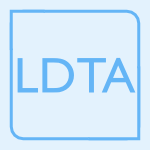 LDTA-2008-DemailleDPS09 #ambiguity #comparison #semantics
LDTA-2008-DemailleDPS09 #ambiguity #comparison #semantics- Semantics Driven Disambiguation: A Comparison of Different Approaches (AD, RD, NP, BS), pp. 101–116.
 ISMM-2009-GuanSJ #performance #policy #using
ISMM-2009-GuanSJ #performance #policy #using- Investigating the effects of using different nursery sizing policies on performance (XG, WSa, CJ), pp. 59–68.
 ISSTA-2009-GorgZ #aspectj #difference #identification #semantics #source code
ISSTA-2009-GorgZ #aspectj #difference #identification #semantics #source code- Identifying semantic differences in AspectJ programs (MTG, JZ), pp. 25–36.
 DATE-2008-PomeranzR08a #fault #taxonomy
DATE-2008-PomeranzR08a #fault #taxonomy- A Same/Different Fault Dictionary: An Extended Pass/Fail Fault Dictionary with Improved Diagnostic Resolution (IP, SMR), pp. 1474–1479.
 DATE-2008-YoshidaF
DATE-2008-YoshidaF- Performance-Constrained Different Cell Count Minimization for Continuously-Sized Circuits (HY, MF), pp. 1099–1102.
 DRR-2008-ZavorinBDBS #classification #recognition #word
DRR-2008-ZavorinBDBS #classification #recognition #word- Combining different classification approaches to improve off-line Arabic handwritten word recognition (IZ, EB, ED, AB, KMS), p. 681504.
 HT-2008-JatowtKOT #documentation #interactive #modelling #towards #what
HT-2008-JatowtKOT #documentation #interactive #modelling #towards #what- What can history tell us?: towards different models of interaction with document histories (AJ, YK, HO, KT), pp. 5–14.
 SIGMOD-2008-AbadiMH #how #question
SIGMOD-2008-AbadiMH #how #question- Column-stores vs. row-stores: how different are they really? (DJA, SM, NH), pp. 967–980.
 FoSSaCS-2008-Walukiewicz
FoSSaCS-2008-Walukiewicz- Finding Your Way in a Forest: On Different Types of Trees and Their Properties (IW), pp. 1–4.
 CSMR-2008-DozsaGM #how #lisp
CSMR-2008-DozsaGM #how #lisp- How Lisp Systems Look Different (AD, TG, RM), pp. 223–232.
 CHI-2008-Muller-TomfeldeS #collaboration #difference #multi
CHI-2008-Muller-TomfeldeS #collaboration #difference #multi- Touchers and mousers: commonalities and differences in co-located collaboration with multiple input devices (CMT, CS), pp. 1149–1152.
 ICEIS-HCI-2008-SchmitzMW #challenge #difference #testing #web
ICEIS-HCI-2008-SchmitzMW #challenge #difference #testing #web- Cultural Differences between Taiwanese and German Web User — Challenges for Intercultural User Testing (AKS, TM, CWH), pp. 62–69.
 ICEIS-ISAS2-2008-CabreroGP #predict
ICEIS-ISAS2-2008-CabreroGP #predict- Combining Different Change Prediction Techniques (DCM, JG, MP), pp. 57–63.
 CIKM-2008-ArvolaKJ #retrieval #xml
CIKM-2008-ArvolaKJ #retrieval #xml- The effect of contextualization at different granularity levels in content-oriented xml retrieval (PA, JK, MJ), pp. 1491–1492.
 CIKM-2008-FriedlandA #retrieval
CIKM-2008-FriedlandA #retrieval- Joke retrieval: recognizing the same joke told differently (LF, JA), pp. 883–892.
 ECIR-2008-SongTWHY #perspective #proximity
ECIR-2008-SongTWHY #perspective #proximity- Viewing Term Proximity from a Different Perspective (RS, MJT, JRW, HWH, YY), pp. 346–357.
 ICML-2008-Li #approximate #comparison #difference #linear #worst-case
ICML-2008-Li #approximate #comparison #difference #linear #worst-case- A worst-case comparison between temporal difference and residual gradient with linear function approximation (LL), pp. 560–567.
 ICML-2008-MakinoT #network #online
ICML-2008-MakinoT #network #online- On-line discovery of temporal-difference networks (TM, TT), pp. 632–639.
 ICML-2008-YaoL #difference #learning
ICML-2008-YaoL #difference #learning- Preconditioned temporal difference learning (HY, ZQL), pp. 1208–1215.
 ICPR-2008-GuoX #difference #recognition
ICPR-2008-GuoX #difference #recognition- Local Gabor phase difference pattern for face recognition (YG, ZX), pp. 1–4.
 ICPR-2008-HortaMF #algorithm #clustering #comparison #image #using
ICPR-2008-HortaMF #algorithm #clustering #comparison #image #using- A comparison of clustering fully polarimetric SAR images using SEM algorithm and G0P mixture modelwith different initializations (MMH, NDAM, ACF), pp. 1–4.
 ICPR-2008-NingXZGH #detection #difference #learning
ICPR-2008-NingXZGH #detection #difference #learning- Temporal difference learning to detect unsafe system states (HN, WX, YZ, YG, TSH), pp. 1–4.
 ICPR-2008-TaEL #difference #equation #graph
ICPR-2008-TaEL #difference #equation #graph- Nonlocal morphological levelings by partial difference equations over weighted graphs (VTT, AE, OL), pp. 1–4.
 ICPR-2008-UdeA #perspective #recognition
ICPR-2008-UdeA #perspective #recognition- Control and recognition on a humanoid head with cameras having different field of view (AU, TA), pp. 1–4.
 KR-2008-KontchakovWZ #difference #ontology #question
KR-2008-KontchakovWZ #difference #ontology #question- Can You Tell the Difference Between DL-Lite Ontologies? (RK, FW, MZ), pp. 285–295.
 SIGIR-2008-Diaz08b #bound #empirical #metric #robust #similarity
SIGIR-2008-Diaz08b #bound #empirical #metric #robust #similarity- Theoretical bounds on and empirical robustness of score regularization to different similarity measures (FDD), pp. 809–810.
 SIGIR-2008-HeMO #metric #retrieval #using
SIGIR-2008-HeMO #metric #retrieval #using- Retrieval sensitivity under training using different measures (BH, CM, IO), pp. 67–74.
 SIGIR-2008-ZhangHZ #clustering #comparative #documentation #evaluation
SIGIR-2008-ZhangHZ #clustering #comparative #documentation #evaluation- A comparative evaluation of different link types on enhancing document clustering (XZ, XH, XZ), pp. 555–562.
 TOOLS-EUROPE-2008-RiveraV #difference #representation
TOOLS-EUROPE-2008-RiveraV #difference #representation- Representing and Operating with Model Differences (JER, AV), pp. 141–160.
 PPDP-2008-FeydySS #constraints #difference #finite
PPDP-2008-FeydySS #constraints #difference #finite- Global difference constraint propagation for finite domain solvers (TF, AS, PJS), pp. 226–235.
 SAC-2008-ToledoFR #algorithm #problem #scheduling #search-based
SAC-2008-ToledoFR #algorithm #problem #scheduling #search-based- Evaluating genetic algorithms with different population structures on a lot sizing and scheduling problem (CFMT, PMF, KAR), pp. 1777–1781.
 CGO-2008-ZhuangKSC #analysis #difference #framework #named #performance #virtual machine
CGO-2008-ZhuangKSC #analysis #difference #framework #named #performance #virtual machine- Perfdiff: a framework for performance difference analysis in a virtual machine environment (XZ, SK, MJS, JDC), pp. 4–13.
 OSDI-2008-GuptaLVSSVVV #difference #memory management #virtual machine
OSDI-2008-GuptaLVSSVVV #difference #memory management #virtual machine- Difference Engine: Harnessing Memory Redundancy in Virtual Machines (DG, SL, MV, SS, ACS, GV, GMV, AV), pp. 309–322.
 IJCAR-2008-KaminskiS #difference #hybrid #logic
IJCAR-2008-KaminskiS #difference #hybrid #logic- Terminating Tableaux for Hybrid Logic with the Difference Modality and Converse (MK, GS), pp. 210–225.
 IJCAR-2008-KonevWW #difference #logic #problem
IJCAR-2008-KonevWW #difference #logic #problem- The Logical Difference Problem for Description Logic Terminologies (BK, DW, FW), pp. 259–274.
 QoSA-2007-KoziolekBH #architecture #component #performance #predict
QoSA-2007-KoziolekBH #architecture #component #performance #predict- Predicting the Performance of Component-Based Software Architectures with Different Usage Profiles (HK, SB, JH), pp. 145–163.
 DRR-2007-YangKR #difference
DRR-2007-YangKR #difference- Scale-controlled area difference shape descriptor (MY, KK, JR).
 HT-2007-WrightP #case study
HT-2007-WrightP #case study- A study of publisher, writer, and reader: different perspectives on digital fiction (HW, DP), pp. 157–158.
 ICDAR-2007-AbedM #comparison #feature model #preprocessor #recognition
ICDAR-2007-AbedM #comparison #feature model #preprocessor #recognition- Comparison of Different Preprocessing and Feature Extraction Methods for Offline Recognition of Handwritten ArabicWords (HEA, VM), pp. 974–978.
 ICDAR-2007-AraujoCF #approach #online #verification
ICDAR-2007-AraujoCF #approach #online #verification- An Approach to Improve Accuracy Rate of On-line Signature Verification Systems of Different Sizes (RA, GDCC, ECBCF), pp. 332–336.
 ICDAR-2007-BaudrierR #image #visualisation
ICDAR-2007-BaudrierR #image #visualisation- A Method for Image Local-Difference Visualization (EB, AR), pp. 949–953.
 ICDAR-2007-HirayamaNK #classification #difference #using
ICDAR-2007-HirayamaNK #classification #difference #using- A Classifier of Similar Characters using Compound Mahalanobis Function based on Difference Subspace (JH, HN, NK), pp. 432–436.
 ICDAR-2007-HuangSHFN #approach #difference #recognition #using
ICDAR-2007-HuangSHFN #approach #difference #recognition #using- An SVM-Based High-accurate Recognition Approach for Handwritten Numerals by Using Difference Features (KH, JS, YH, KF, SN), pp. 589–593.
 VLDB-2007-BleiholderDN #data fusion #named #semantics
VLDB-2007-BleiholderDN #data fusion #named #semantics- FuSem — Exploring Different Semantics of Data Fusion (JB, KD, FN), pp. 1350–1353.
 ITiCSE-2007-VoylesHF #difference #education #gender #student
ITiCSE-2007-VoylesHF #difference #education #gender #student- Teacher responses to student gender differences (MMV, SMH, TVF), pp. 226–230.
 DHM-2007-ChuangL #design #interface #usability
DHM-2007-ChuangL #design #interface #usability- The Usability of Metaphors with Different Degree of Abstract in Interface Design (MCC, IL), pp. 343–352.
 DHM-2007-KanezashiMO #difference #interface
DHM-2007-KanezashiMO #difference #interface- Strategy to Operate Cylindrical Interface-Operation Difference According to the Dimension of the Cylinder and That of the Hand (OK, NM, JO), pp. 865–873.
 HCI-AS-2007-ChuL #internet #online #towards
HCI-AS-2007-ChuL #internet #online #towards- The Experiential Preferences of the Online Consumers in Different Internet Shopping Lifestyles Towards Online Shopping Websites (YC, JJL), pp. 3–11.
 HCI-AS-2007-LuYTHY #difference #learning #named
HCI-AS-2007-LuYTHY #difference #learning #named- KaLeSy-CJ: Kanji Learning System Focusing on Differences Between Chinese and Japanese (SL, NY, HT, TH, TY), pp. 302–311.
 HCI-IDU-2007-HermannNPHN #taxonomy #towards
HCI-IDU-2007-HermannNPHN #taxonomy #towards- Users Interact Differently: Towards a Usability-Oriented User Taxonomy (FH, IN, MP, KH, AN), pp. 812–817.
 HCI-IDU-2007-KangY #difference #performance
HCI-IDU-2007-KangY #difference #performance- Age Differences in Performance, Operation Methods, and Workload While Interacting with an MP3 Player (NEK, WCY), pp. 854–861.
 HCI-IDU-2007-OkamotoKGI #design #using
HCI-IDU-2007-OkamotoKGI #design #using- Participatory Design Using Scenarios in Different Cultures (MO, HK, IG, KI), pp. 223–231.
 HCI-IPT-2007-AuerD #difference
HCI-IPT-2007-AuerD #difference- When Does a Difference Make a Difference? A Snapshot on Global Icon Comprehensibility (SA, ED), pp. 3–12.
 HIMI-IIE-2007-Quraishy #case study #design #health #how #implementation #information management
HIMI-IIE-2007-Quraishy #case study #design #health #how #implementation #information management- How Participation at Different Hierarchical Levels Can Have an Impact on the Design and Implementation of Health Information Systems at the Grass Root Level — A Case Study from India (ZBQ), pp. 128–136.
 OCSC-2007-ChenY07a #collaboration #design #difference #industrial #learning
OCSC-2007-ChenY07a #collaboration #design #difference #industrial #learning- The Differences Between the Influences of Synchronous and Asynchronous Modes on Collaborative Learning Project of Industrial Design (WC, MY), pp. 275–283.
 EDOC-2007-Dijkman #classification #difference
EDOC-2007-Dijkman #classification #difference- A Classification of Differences between Similar BusinessProcesses (RMD), pp. 37–50.
 ICEIS-AIDSS-2007-PrauseKAOC #development #documentation #tool support
ICEIS-AIDSS-2007-PrauseKAOC #development #documentation #tool support- Interconnecting Documentation — Harnessing the Different Powers of Current Documentation Tools in Software Development (CP, JK, SA, RO, ABC), pp. 63–68.
 ICEIS-EIS-2007-AvisonP #design #development #information management
ICEIS-EIS-2007-AvisonP #design #development #information management- Designing an Appropriate Information Systems Development Methodology for Different Situations (DEA, JPH), pp. 63–70.
 ICEIS-J-2007-AvisonP07a #design #development #flexibility #information management
ICEIS-J-2007-AvisonP07a #design #development #flexibility #information management- Flexible Information Systems Development: Designing an Appropriate Methodology for Different Situations (DEA, JPH), pp. 212–224.
 ICEIS-SAIC-2007-ChenC #bottom-up #detection #difference #process
ICEIS-SAIC-2007-ChenC #bottom-up #detection #difference #process- A Simulation-Based Difference Detection Technique for Bottom-Up Process Reconciliation (XC, PWHC), pp. 72–77.
 ICEIS-SAIC-2007-KirikovaSGO #abstraction #analysis #flexibility #process
ICEIS-SAIC-2007-KirikovaSGO #abstraction #analysis #flexibility #process- Analysis of Business Process Flexibility at Different Levels of Abstraction (MK, RS, JG, JO), pp. 389–396.
 ECIR-2007-PanLZTC #retrieval #video
ECIR-2007-PanLZTC #retrieval #video- Retrieval Method for Video Content in Different Format Based on Spatiotemporal Features (XP, JL, YZ, ST, JC), pp. 728–731.
 ICML-2007-BickelBS #learning
ICML-2007-BickelBS #learning- Discriminative learning for differing training and test distributions (SB, MB, TS), pp. 81–88.
 ICML-2007-YamazakiKWSM #fault
ICML-2007-YamazakiKWSM #fault- Asymptotic Bayesian generalization error when training and test distributions are different (KY, MK, SW, MS, KRM), pp. 1079–1086.
 KDD-2007-VreekenLS #difference
KDD-2007-VreekenLS #difference- Characterising the difference (JV, MvL, AS), pp. 765–774.
 MLDM-2007-HulsmannF #algorithm #comparison #multi #novel #optimisation #parametricity
MLDM-2007-HulsmannF #algorithm #comparison #multi #novel #optimisation #parametricity- Comparison of a Novel Combined ECOC Strategy with Different Multiclass Algorithms Together with Parameter Optimization Methods (MH, CMF), pp. 17–31.
 SIGIR-2007-GaoNNZHWH #query #using
SIGIR-2007-GaoNNZHWH #query #using- Cross-lingual query suggestion using query logs of different languages (WG, CN, JYN, MZ, JH, KFW, HWH), pp. 463–470.
 TOOLS-EUROPE-2007-CicchettiRP #approach #difference #independence #metamodelling #representation
TOOLS-EUROPE-2007-CicchettiRP #approach #difference #independence #metamodelling #representation- A Metamodel Independent Approach to Difference Representation (AC, DDR, AP), pp. 165–185.
 SAC-2007-BrunauerLMMP #evolution
SAC-2007-BrunauerLMMP #evolution- Evolution of iterated prisoner’s dilemma strategies with different history lengths in static and cultural environments (RB, AL, HAM, GM, HP), pp. 720–727.
 SAC-2007-HostL #assessment #concept #risk management
SAC-2007-HostL #assessment #concept #risk management- Different conceptions in software project risk assessment (MH, CL), pp. 1422–1426.
 ESEC-FSE-2007-SharpHBB #developer #difference
ESEC-FSE-2007-SharpHBB #developer #difference- Exploring motivational differences between software developers and project managers (HS, TH, NB, SB), pp. 501–504.
 ESEC-FSE-2007-TreudeBWK #difference #modelling #scalability
ESEC-FSE-2007-TreudeBWK #difference #modelling #scalability- Difference computation of large models (CT, SB, SW, UK), pp. 295–304.
 SPLC-2007-GanesanKKHM #case study #cost analysis #product line
SPLC-2007-GanesanKKHM #case study #cost analysis #product line- Comparing Costs and Benefits of Different Test Strategies for a Software Product Line: A Study from Testo AG (DG, JK, RK, UH, GM), pp. 74–83.
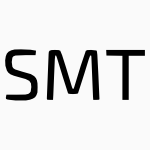 SMT-J-2006-GanaiTG07 #difference #encoding #integration #lazy evaluation #logic #named
SMT-J-2006-GanaiTG07 #difference #encoding #integration #lazy evaluation #logic #named- SDSAT: Tight Integration of Small Domain Encoding and Lazy Approaches in Solving Difference Logic (MKG, MT, AG), pp. 91–114.
 SMT-J-2006-KimJS07 #difference #finite #integer #logic
SMT-J-2006-KimJS07 #difference #finite #integer #logic- Disequality Management in Integer Difference Logic via Finite Instantiations (HK, HJ, FS), pp. 47–66.
 VMCAI-2007-PeronH #abstract domain #bound #constraints #matrix
VMCAI-2007-PeronH #abstract domain #bound #constraints #matrix- An Abstract Domain Extending Difference-Bound Matrices with Disequality Constraints (MP, NH), pp. 268–282.
 DAC-2006-BorkarBCNSS #question
DAC-2006-BorkarBCNSS #question- Tomorrow’s analog: just dead or just different? (SYB, RWB, JHC, EN, DS, CS), pp. 709–710.
 DAC-2006-HerreraV #embedded #framework #modelling #specification
DAC-2006-HerreraV #embedded #framework #modelling #specification- A framework for embedded system specification under different models of computation in SystemC (FH, EV), pp. 911–914.
 DAC-2006-WangGG #deduction #difference #learning #logic
DAC-2006-WangGG #deduction #difference #learning #logic- Predicate learning and selective theory deduction for a difference logic solver (CW, AG, MKG), pp. 235–240.
 DATE-DF-2006-BannowHR #automation #clustering #design #evaluation #performance
DATE-DF-2006-BannowHR #automation #clustering #design #evaluation #performance- Automatic systemC design configuration for a faster evaluation of different partitioning alternatives (NB, KH, WR), pp. 217–218.
 DocEng-2006-Moore #documentation
DocEng-2006-Moore #documentation- Every page is different: a new document type for commercial printing (KM), p. 2.
 DRR-2006-AsSadhanBSN #classification #comparative #evaluation #recognition #robust
DRR-2006-AsSadhanBSN #classification #comparative #evaluation #recognition #robust- Comparative evaluation of different classifiers for robust distorted-character recognition (BA, ZAB, AES, MN).
 HT-2006-JensenM #corpus #multi #retrieval #web
HT-2006-JensenM #corpus #multi #retrieval #web- Different indexing strategies for multilingual web retrieval: experiments with the EuroGOV corpus (NJ, TM), pp. 169–170.
 ITiCSE-2006-BerglundW #empirical #student
ITiCSE-2006-BerglundW #empirical #student- Students learn CS in different ways: insights from an empirical study (AB, MW), pp. 265–269.
 ITiCSE-2006-VilnerZ #difference #gender
ITiCSE-2006-VilnerZ #difference #gender- Once she makes it, she is there: gender differences in computer science study (TV, EZ), pp. 227–231.
 ICSM-2006-FisherCZ #comprehension #difference #using
ICSM-2006-FisherCZ #comprehension #difference #using- Using Sex Differences to Link Spatial Cognition and Program Comprehension (MF, AC, LZ), pp. 289–298.
 SCAM-2006-CollardKM #difference
SCAM-2006-CollardKM #difference- Factoring Differences for Iterative Change Management (MLC, HHK, JIM), pp. 217–226.
 CSCW-2006-KayanFS #difference
CSCW-2006-KayanFS #difference- Cultural differences in the use of instant messaging in Asia and North America (SK, SRF, LDS), pp. 525–528.
 CIKM-2006-MullerFL #database #difference
CIKM-2006-MullerFL #database #difference- Describing differences between databases (HM, JCF, UL), pp. 612–621.
 CIKM-2006-ZhaZFS #difference #learning #query #retrieval #web
CIKM-2006-ZhaZFS #difference #learning #query #retrieval #web- Incorporating query difference for learning retrieval functions in world wide web search (HZ, ZZ, HF, GS), pp. 307–316.
 ECIR-2006-NottelmannF #architecture #network #peer-to-peer #query
ECIR-2006-NottelmannF #architecture #network #peer-to-peer #query- Comparing Different Architectures for Query Routing in Peer-to-Peer Networks (HN, NF), pp. 253–264.
 ICML-2006-AsgharbeygiSL #difference #learning #relational
ICML-2006-AsgharbeygiSL #difference #learning #relational- Relational temporal difference learning (NA, DJS, PL), pp. 49–56.
 ICPR-v2-2006-MouchereA
ICPR-v2-2006-MouchereA- A Unified Strategy to Deal with Different Natures of Reject (HM, ÉA), pp. 792–795.
 ICPR-v2-2006-YaslanC #classification #feature model #music #using
ICPR-v2-2006-YaslanC #classification #feature model #music #using- Audio Music Genre Classification Using Different Classifiers and Feature Selection Methods (YY, ZÇ), pp. 573–576.
 ICPR-v2-2006-ZhangC #classification #locality
ICPR-v2-2006-ZhangC #classification #locality- Comparing Different Localization Approaches of the Radon Transform for Road Centerline Extraction from Classified Satellite Imagery (QZ, IC), pp. 138–141.
 ICPR-v3-2006-HeTHY #difference #recognition
ICPR-v3-2006-HeTHY #difference #recognition- Face Recognition with Relative Difference Space and SVM (XH, JT, YH, XY), pp. 527–531.
 SIGIR-2006-ZhaZFS #difference #information retrieval #learning #query
SIGIR-2006-ZhaZFS #difference #information retrieval #learning #query- Incorporating query difference for learning retrieval functions in information retrieval (HZ, ZZ, HF, GS), pp. 721–722.
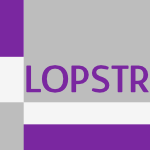 LOPSTR-2006-MantelSK #data flow #proving #security #verification
LOPSTR-2006-MantelSK #data flow #proving #security #verification- Combining Different Proof Techniques for Verifying Information Flow Security (HM, HS, TK), pp. 94–110.
 SAC-2006-ColletOR #behaviour #component #on the
SAC-2006-ColletOR #behaviour #component #on the- On contracting different behavioral properties in component-based systems (PC, AO, NR), pp. 1798–1799.
 SAC-2006-RodriguesMC #order
SAC-2006-RodriguesMC #order- From spontaneous total order to uniform total order: different degrees of optimistic delivery (LR, JM, NC), pp. 723–727.
 LICS-2006-TatsutaD #difference #normalisation
LICS-2006-TatsutaD #difference #normalisation- Normalisation is Insensible to λ-Term Identity or Difference (MT, MDC), pp. 327–338.
 SAT-2006-CottonM #constraints #difference #flexibility #performance
SAT-2006-CottonM #constraints #difference #flexibility #performance- Fast and Flexible Difference Constraint Propagation for DPLL(T) (SC, OM), pp. 170–183.
 ASE-2005-UbayashiMMT #aspect-oriented #interpreter #modelling
ASE-2005-UbayashiMMT #aspect-oriented #interpreter #modelling- A parameterized interpreter for modeling different AOP mechanisms (NU, GM, HM, TT), pp. 194–203.
 DATE-2005-MajhiAGLEB #evaluation #industrial #memory management #testing
DATE-2005-MajhiAGLEB #evaluation #industrial #memory management #testing- Memory Testing Under Different Stress Conditions: An Industrial Evaluation (AKM, MA, GG, ML, SE, FB), pp. 438–443.
 ICDAR-2005-LiwickiB #database #recognition
ICDAR-2005-LiwickiB #database #recognition- Enhancing Training Data for Handwriting Recognition of Whiteboard Notes with Samples from a Different Database (ML, HB), pp. 550–554.
 VLDB-2005-BizarroBDW
VLDB-2005-BizarroBDW- Content-Based Routing: Different Plans for Different Data (PB, SB, DJD, JW), pp. 757–768.
 ITiCSE-2005-LiccardiW #comprehension #difference #effectiveness
ITiCSE-2005-LiccardiW #comprehension #difference #effectiveness- Understanding disciplinary differences: an insight into selecting effective e-learning approaches (IL, SW), p. 411.
 CHI-2005-OviattLC #difference #integration #multimodal #question #what #why
CHI-2005-OviattLC #difference #integration #multimodal #question #what #why- Individual differences in multimodal integration patterns: what are they and why do they exist? (SLO, RL, RC), pp. 241–249.
 ICEIS-v1-2005-ChaariL #adaptation #generative #named #user interface #visual notation
ICEIS-v1-2005-ChaariL #adaptation #generative #named #user interface #visual notation- SEFAGI: Simple Environment for Adaptable Graphical Interfaces — Generating User Interfaces for Different Kinds of Terminals (TC, FL), pp. 232–237.
 ICML-2005-TannerS #network
ICML-2005-TannerS #network- TD(λ) networks: temporal-difference networks with eligibility traces (BT, RSS), pp. 888–895.
 LSO-2005-VillelaRT #development #on the
LSO-2005-VillelaRT #development #on the- On the Importance Attributed to Different Knowledge in Software Development Environments (KV, ARR, GT), pp. 97–101.
 MLDM-2005-SzepannekLW #classification #comprehension
MLDM-2005-SzepannekLW #classification #comprehension- Understanding Patterns with Different Subspace Classification (GS, KL, CW), pp. 110–119.
 MLDM-2005-TaniguchiHO #correlation #database #difference #transaction
MLDM-2005-TaniguchiHO #correlation #database #difference #transaction- Discovery of Hidden Correlations in a Local Transaction Database Based on Differences of Correlations (TT, MH, YO), pp. 537–548.
 SEKE-2005-JonssonW #comprehension #empirical #impact analysis
SEKE-2005-JonssonW #comprehension #empirical #impact analysis- Understanding Impact Analysis: An Empirical Study to Capture Knowledge on Different Organisational Level (PJ, CW), pp. 707–712.
 SAT-J-2004-ArmandoCGM05 #constraints #difference #satisfiability
SAT-J-2004-ArmandoCGM05 #constraints #difference #satisfiability- A SAT-Based Decision Procedure for the Boolean Combination of Difference Constraints (AA, CC, EG, MM), pp. 16–29.
 AMOST-2005-CaiL #detection #fault #test coverage #testing
AMOST-2005-CaiL #detection #fault #test coverage #testing- The effect of code coverage on fault detection under different testing profiles (XC, MRL).
 CAV-2005-NieuwenhuisO #difference #logic
CAV-2005-NieuwenhuisO #difference #logic- DPLL(T) with Exhaustive Theory Propagation and Its Application to Difference Logic (RN, AO), pp. 321–334.
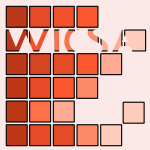 WICSA-2004-RoshandelSMGZ #architecture #comprehension #modelling #trade-off
WICSA-2004-RoshandelSMGZ #architecture #comprehension #modelling #trade-off- Understanding Tradeoffs among Different Architectural Modeling Approaches (RR, BRS, NM, DG, DZ), pp. 47–56.
 DAC-2004-ContiCVOT #algorithm #analysis #performance
DAC-2004-ContiCVOT #algorithm #analysis #performance- Performance analysis of different arbitration algorithms of the AMBA AHB bus (MC, MC, GBV, SO, CT), pp. 618–621.
 ICSM-2004-MaleticC #analysis #difference #source code
ICSM-2004-MaleticC #analysis #difference #source code- Supporting Source Code Difference Analysis (JIM, MLC), pp. 210–219.
 ICSM-2004-XieN #black box #difference #testing
ICSM-2004-XieN #black box #difference #testing- Checking Inside the Black Box: Regression Testing Based on Value Spectra Differences (TX, DN), pp. 28–37.
 CIAA-2004-Zijl #difference #symmetry
CIAA-2004-Zijl #difference #symmetry- Magic Numbers for Symmetric Difference NFAs (LvZ), pp. 333–334.
 CHI-2004-AdamczykB #execution
CHI-2004-AdamczykB #execution- If not now, when?: the effects of interruption at different moments within task execution (PDA, BPB), pp. 271–278.
 CHI-2004-LudfordCFT #community #difference #online #using
CHI-2004-LudfordCFT #community #difference #online #using- Think different: increasing online community participation using uniqueness and group dissimilarity (PJL, DC, DF, LGT), pp. 631–638.
 CHI-2004-MizobuchiY
CHI-2004-MizobuchiY- Tapping vs. circling selections on pen-based devices: evidence for different performance-shaping factors (SM, MY), pp. 607–614.
 ICEIS-v1-2004-CorcolesG #integration #web #xml
ICEIS-v1-2004-CorcolesG #integration #web #xml- Study of Different Approaches to the Integration of Spatial XML Web Resources (JEC, PG), pp. 364–369.
 ICEIS-v4-2004-KanzowDA #deployment #how #multi #workflow
ICEIS-v4-2004-KanzowDA #deployment #how #multi #workflow- Flow-Oriented Deployment of a Multi-Agent Population for Dynamic Workflow Enactment: A Different View on How to Use Agents for Workflow Management (SK, KD, YA), pp. 510–514.
 ICPR-v1-2004-PnevmatikakisP #comparison
ICPR-v1-2004-PnevmatikakisP #comparison- Comparison of Eigenface-Based Feature Vectors under Different Impairments (AP, LP), pp. 296–299.
 ICPR-v2-2004-CaetanoCB #algorithm #comparison #distance #metric #using
ICPR-v2-2004-CaetanoCB #algorithm #comparison #distance #metric #using- A Comparison of Junction Tree and Relaxation Algorithms for Point Matching using Different Distance Metrics (TSC, TC, DACB), pp. 124–127.
 ICPR-v2-2004-EwerthF #detection #difference #normalisation
ICPR-v2-2004-EwerthF #detection #difference #normalisation- Improving Cut Detection in MPEG Videos by GOP-Oriented Frame Difference Normalization (RE, BF), pp. 807–810.
 ICPR-v2-2004-LiuTLM #analysis #kernel #recognition
ICPR-v2-2004-LiuTLM #analysis #kernel #recognition- Kernel Scatter-Difference Based Discriminant Analysis For Face Recognition (QL, XT, HL, SM), pp. 419–422.
 ICPR-v4-2004-ChoH #image
ICPR-v4-2004-ChoH #image- Extending Dynamic Range of Two Color Images under Different Exposures (WhC, KSH), pp. 853–856.
 ICPR-v4-2004-Richard #approach #consistency #difference #image
ICPR-v4-2004-Richard #approach #consistency #difference #image- A New Approach For The Registration of Images With Inconsistent Differences (FJPR), pp. 649–652.
 ICPR-v4-2004-SangiHS #analysis #difference #metric #using
ICPR-v4-2004-SangiHS #analysis #difference #metric #using- Motion Analysis Using Frame Differences with Spatial Gradient Measures (PS, JH, OS), pp. 733–736.
 KDD-2004-NijssenK #difference #mining
KDD-2004-NijssenK #difference #mining- A quickstart in frequent structure mining can make a difference (SN, JNK), pp. 647–652.
 RE-2004-BuhneHPWKW #abstraction #requirements
RE-2004-BuhneHPWKW #abstraction #requirements- Defining Requirements at Different Levels of Abstraction (SB, GH, KP, MW, HK, TW), pp. 346–347.
 ATEM-2003-Blaha04 #modelling
ATEM-2003-Blaha04 #modelling- Data Store Models are Different Than Data Interchange Models (MRB), pp. 51–58.
 SAT-2004-ArmandoCGM #constraints #difference #satisfiability
SAT-2004-ArmandoCGM #constraints #difference #satisfiability- A SAT-based Decision Procedure for the Boolean Combination of Difference Constraints (AA, CC, EG, MM), pp. 166–173.
 DATE-2003-GuptaB #architecture
DATE-2003-GuptaB #architecture- Different Approaches to Add Reconfigurability in a SoC Architecture (BG, MB), p. 10398.
 DATE-2003-Sanchez-ElezFADBH #architecture #configuration management #data transformation #energy #memory management #multi
DATE-2003-Sanchez-ElezFADBH #architecture #configuration management #data transformation #energy #memory management #multi- Low Energy Data Management for Different On-Chip Memory Levels in Multi-Context Reconfigurable Architectures (MSE, MF, MLA, HD, NB, RH), pp. 10036–10043.
 CSEET-2003-Diaz-HerreraTR #re-engineering
CSEET-2003-Diaz-HerreraTR #re-engineering- Software Engineering Retraining — Different Perspectives (JLDH, PT, DR), p. 322–?.
 ITiCSE-2003-Gal-EzerVZ #algorithm #approach #education #performance
ITiCSE-2003-Gal-EzerVZ #algorithm #approach #education #performance- Teaching algorithm efficiency in a CS1 course SBTa different approach (JGE, TV, EZ), p. 256.
 ITiCSE-2003-LynchM #learning #student
ITiCSE-2003-LynchM #learning #student- The winds of change: students’ comfort level in different learning environments (KL, SM), pp. 70–73.
 ITiCSE-2003-MeedenNBK #difference #gender #using
ITiCSE-2003-MeedenNBK #difference #gender #using- Using departmental surveys to assess computing culture: quantifying gender differences in the classroom (LM, TN, DSB, DK), pp. 188–192.
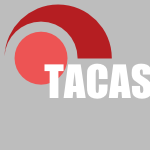 TACAS-2003-AmlaKMM #analysis #bound #model checking
TACAS-2003-AmlaKMM #analysis #bound #model checking- Experimental Analysis of Different Techniques for Bounded Model Checking (NA, RPK, KLM, RM), pp. 34–48.
 CSMR-2003-JiangS #case study #difference #tool support
CSMR-2003-JiangS #case study #difference #tool support- Exploring Differences in Exchange Formats — Tool Support and Case Studies (JJ, TS), pp. 389–398.
 ICSM-2003-OhstWK #analysis #design #difference #documentation #tool support
ICSM-2003-OhstWK #analysis #design #difference #documentation #tool support- Difference Tools for Analysis and Design Documents (DO, MW, UK), pp. 13–22.
 IWPC-2003-Klint #compilation #comprehension #how #perspective
IWPC-2003-Klint #compilation #comprehension #how #perspective- How Understanding and Restructuring Differ from Compiling — A Rewriting Perspective (PK), pp. 2–12.
 IWPC-2003-KoU #comprehension #difference #programming
IWPC-2003-KoU #comprehension #difference #programming- Individual Differences in Program Comprehension Strategies in Unfamiliar Programming Systems (AJK, BU), pp. 175–184.
 SCAM-2003-PearceKH #analysis #detection #difference #online #pointer
SCAM-2003-PearceKH #analysis #detection #difference #online #pointer- Online Cycle Detection and Difference Propagation for Pointer Analysis (DJP, PHJK, CH), pp. 3–12.
 CHI-2003-ShechtmanH #difference #how #people
CHI-2003-ShechtmanH #difference #how #people- Media inequality in conversation: how people behave differently when interacting with computers and people (NS, LMH), pp. 281–288.
 ICEIS-v3-2003-ArbaouiHOTV #difference #enterprise #process
ICEIS-v3-2003-ArbaouiHOTV #difference #enterprise #process- Languages and Mechanisms for Software Processes and Manufacturing Enterprise Processes: Similarities and Differences (SA, AH, FO, FT, HV), pp. 474–482.
 ICEIS-v3-2003-BarjisG #requirements
ICEIS-v3-2003-BarjisG #requirements- Requirements Engineering Versus Language/Action Perspective: Different Facets and Possible Contribution (JB, TG), pp. 14–22.
 ICEIS-v3-2003-OrlovK #abstraction #editing
ICEIS-v3-2003-OrlovK #abstraction #editing- A Unified Tool for Editing Information of Different Levels of Abstraction (VO, AK), pp. 633–636.
 ICEIS-v3-2003-SutharshanMK #design #difference #implementation
ICEIS-v3-2003-SutharshanMK #design #difference #implementation- Implementing User Centred Partnership Design — Change in Attitude Made a Difference (AS, SPM, GK), pp. 456–461.
 ICML-2003-EngelMM #approach #difference #learning #process
ICML-2003-EngelMM #approach #difference #learning #process- Bayes Meets Bellman: The Gaussian Process Approach to Temporal Difference Learning (YE, SM, RM), pp. 154–161.
 ICML-2003-KotnikK #learning #self
ICML-2003-KotnikK #learning #self- The Significance of Temporal-Difference Learning in Self-Play Training TD-Rummy versus EVO-rummy (CK, JKK), pp. 369–375.
 KDD-2003-WebbBN #detection #difference #on the
KDD-2003-WebbBN #detection #difference #on the- On detecting differences between groups (GIW, SMB, DAN), pp. 256–265.
 SIGIR-2003-IwayamaFKM #documentation #empirical #modelling #retrieval
SIGIR-2003-IwayamaFKM #documentation #empirical #modelling #retrieval- An empirical study on retrieval models for different document genres: patents and newspaper articles (MI, AF, NK, YM), pp. 251–258.
 SIGIR-2003-NottelmannF #quality #retrieval
SIGIR-2003-NottelmannF #quality #retrieval- Evaluating different methods of estimating retrieval quality for resource selection (HN, NF), pp. 290–297.
 UML-2003-AlanenP #difference #modelling
UML-2003-AlanenP #difference #modelling- Difference and Union of Models (MA, IP), pp. 2–17.
 ESEC-FSE-2003-OhstWK #diagrams #difference #uml
ESEC-FSE-2003-OhstWK #diagrams #difference #uml- Differences between versions of UML diagrams (DO, MW, UK), pp. 227–236.
 ICSE-2003-JohnsonKACMMZD #analysis #metric #process
ICSE-2003-JohnsonKACMMZD #analysis #metric #process- Beyond the Personal Software Process: Metrics collection and analysis for the differently disciplined (PMJ, HK, JA, CC, CAM, JM, SZ, WEJD), pp. 641–646.
 SAT-2003-EglySTWZ #quantifier
SAT-2003-EglySTWZ #quantifier- Comparing Different Prenexing Strategies for Quantified Boolean Formulas (UE, MS, HT, SW, MZ), pp. 214–228.
 ITiCSE-2002-CarterJ #difference #gender #programming #question
ITiCSE-2002-CarterJ #difference #gender #programming #question- Gender differences in programming? (JC, TJ), pp. 188–192.
 ITiCSE-2002-ChristensenC #framework #programming
ITiCSE-2002-ChristensenC #framework #programming- Frameworks in CS1: a different way of introducing event-driven programming (HBC, MEC), pp. 75–79.
 ITiCSE-2002-KorhonenMMS #difference #question #student #web
ITiCSE-2002-KorhonenMMS #difference #question #student #web- Does it make a difference if students exercise on the web or in the classroom? (AK, LM, PM, PS), pp. 121–124.
 ITiCSE-2002-ParkinsonR #learning #performance #question
ITiCSE-2002-ParkinsonR #learning #performance #question- Do cognitive styles affect learning performance in different computer media? (AP, JAR), pp. 39–43.
 IWPC-2002-Binkley #comprehension #difference #empirical #semantics
IWPC-2002-Binkley #comprehension #difference #empirical #semantics- An Empirical Study of the Effect of Semantic Differences on Programmer Comprehension (DB), pp. 97–106.
 CAiSE-2002-PontieriUZ #approach #data flow #integration
CAiSE-2002-PontieriUZ #approach #data flow #integration- An Approach for Synergically Carrying out Intensional and Extensional Integration of Data Sources Having Different Formats (LP, DU, EZ), pp. 752–756.
 ICPR-v1-2002-CostaGB #difference #statistics
ICPR-v1-2002-CostaGB #difference #statistics- Orientation Difference Statistics for Texture Description (JPDC, CG, PB), pp. 652–655.
 ICPR-v1-2002-KubotaA #generative #image #linear
ICPR-v1-2002-KubotaA #generative #image #linear- Virtual View Generation by Linear Processing of Two Differently Focused Images (AK, KA), pp. 504–507.
 ICPR-v2-2002-LladoP
ICPR-v2-2002-LladoP- Classifying Textures when Seen from Different Distances (XL, MP), pp. 909–912.
 KR-2002-BrandtKT #approximate #difference #logic
KR-2002-BrandtKT #approximate #difference #logic- Approximation and Difference in Description Logics (SB, RK, AYT), pp. 203–214.
 SIGIR-2002-Kawatani #categorisation #difference #documentation #set #topic
SIGIR-2002-Kawatani #categorisation #difference #documentation #set #topic- Topic difference factor extraction between two document sets and its application to text categorization (TK), pp. 137–144.
 ECOOP-2002-IchisugiT #difference #independence
ECOOP-2002-IchisugiT #difference #independence- Difference-Based Modules: A Class-Independent Module Mechanism (YI, AT), pp. 62–88.
 SAC-2002-CarlssonJ #difference #game studies
SAC-2002-CarlssonJ #difference #game studies- Differences between the iterated prisoner’s dilemma and the chicken game under noisy conditions (BC, KIJ), pp. 42–48.
 SAC-2002-YoungBGL #difference #object-oriented #using
SAC-2002-YoungBGL #difference #object-oriented #using- Using an object oriented model for resolving representational differences between heterogeneous systems (PY, VB, JG, L), pp. 976–983.
 CADE-2002-Moller #difference #library #named #quantifier
CADE-2002-Moller #difference #library #named #quantifier- DDDLIB: A Library for Solving Quantified Difference Inequalities (JBM), pp. 129–133.
 ICLP-2002-Demoen #garbage collection
ICLP-2002-Demoen #garbage collection- A Different Look at Garbage Collection for the WAM (BD), pp. 179–193.
 SAT-2002-MalerMNA #difference #logic #satisfiability
SAT-2002-MalerMNA #difference #logic #satisfiability- A satisfiability checker for difference logic (OM, MM, PN, EA), p. 27.
 WICSA-2001-BaragryR #architecture #why
WICSA-2001-BaragryR #architecture #why- Why We Need A Different View of Software Architecture (JB, KR), p. 125–?.
 ITiCSE-2001-CarterJ #difference #gender #programming #question
ITiCSE-2001-CarterJ #difference #gender #programming #question- Gender differences in programming? (JC, TJ), p. 173.
 ITiCSE-2001-ClearY #question #research #rest
ITiCSE-2001-ClearY #question #research #rest- Are computing educators and researchers different from the rest? (TC, AY), p. 173.
 ICEIS-v1-2001-DamnjanovicRSOPR #case study #data flow #integration
ICEIS-v1-2001-DamnjanovicRSOPR #case study #data flow #integration- Integration of Different Data Sources and Message Queueing System in Postnet-Case Studies (DD, ZR, MS, PO, BP, MR), pp. 279–282.
 ICML-2001-ChoiR #approximate #difference #fixpoint #learning #performance
ICML-2001-ChoiR #approximate #difference #fixpoint #learning #performance- A Generalized Kalman Filter for Fixed Point Approximation and Efficient Temporal Difference Learning (DC, BVR), pp. 43–50.
 ICML-2001-PrecupSD #approximate #difference #learning
ICML-2001-PrecupSD #approximate #difference #learning- Off-Policy Temporal Difference Learning with Function Approximation (DP, RSS, SD), pp. 417–424.
 SAC-2001-ZhouCH #correlation #identification #optimisation #problem #set #using
SAC-2001-ZhouCH #correlation #identification #optimisation #problem #set #using- Identifying the most significant pairwise correlations of residues in different positions of helices: the subset selection problem using least squares optimization (XZ, GC, MTH), pp. 51–55.
 HPDC-2001-WuB #analysis #architecture #parallel
HPDC-2001-WuB #analysis #architecture #parallel- Parallel Retrograde Analysis on Different Architecture (RW, DFB), pp. 356–362.
 ITiCSE-2000-SheardPM #difference #student
ITiCSE-2000-SheardPM #difference #student- Subject differences in student attitudes to paper-based and Web-based resources (poster session) (JS, MP, SM), pp. 192–193.
 ITiCSE-2000-Weber-Wulff #programming
ITiCSE-2000-Weber-Wulff #programming- Combating the code warrior: a different sort of programming instruction (DWW), pp. 85–88.
 ICML-2000-BayP #difference
ICML-2000-BayP #difference- Characterizing Model Erros and Differences (SDB, MJP), pp. 49–56.
 ICML-2000-FariasR #approximate #fixpoint #learning
ICML-2000-FariasR #approximate #fixpoint #learning- Fixed Points of Approximate Value Iteration and Temporal-Difference Learning (DPdF, BVR), pp. 207–214.
 ICML-2000-ForsterW #bound #learning
ICML-2000-ForsterW #bound #learning- Relative Loss Bounds for Temporal-Difference Learning (JF, MKW), pp. 295–302.
 ICML-2000-KatayamaKK #learning #using
ICML-2000-KatayamaKK #learning #using- A Universal Generalization for Temporal-Difference Learning Using Haar Basis Functions (SK, HK, SK), pp. 447–454.
 ICPR-v2-2000-ChazalR #classification #comparison
ICPR-v2-2000-ChazalR #classification #comparison- A Comparison of the Use of Different Wavelet Coefficients for the Classification of the Electrocardiogram (PdC, RBR), pp. 2255–2258.
 ICPR-v2-2000-ClarkO
ICPR-v2-2000-ClarkO- A Temporal-Difference Model of Perceptual Stability in Color Vision (JJC, JKO), pp. 2503–2506.
 ICPR-v2-2000-PanditKLC #case study #comparative #segmentation
ICPR-v2-2000-PanditKLC #case study #comparative #segmentation- A Comparative Study of Different Segmentation Approaches for Audio Track Indexing (MP, JK, YL, EC), pp. 2467–2470.
 ICPR-v3-2000-WestT #refinement
ICPR-v3-2000-WestT #refinement- Assessing Different Features for Pose Refinement (GAWW, ET), pp. 3687–3690.
 ICPR-v4-2000-CordellaTV #clustering
ICPR-v4-2000-CordellaTV #clustering- Combining Experts with Different Features for Classifying Clustered Microcalcifications in Mammograms (LPC, FT, MV), pp. 4324–4327.
 KR-2000-Konieczny #difference #knowledge base #on the
KR-2000-Konieczny #difference #knowledge base #on the- On the Difference between Merging Knowledge Bases and Combining them (SK), pp. 135–144.
 VLDB-1999-Sarawagi #difference #multi
VLDB-1999-Sarawagi #difference #multi- Explaining Differences in Multidimensional Aggregates (SS), pp. 42–53.
 CSMR-1999-Tonella #analysis #points-to #set
CSMR-1999-Tonella #analysis #points-to #set- Effects of Different Flow Insensitive Points-to Analyses on DEF/USE Sets (PT), pp. 62–71.
 HCI-CCAD-1999-LinDF #comprehension #data flow #diagrams #difference
HCI-CCAD-1999-LinDF #comprehension #data flow #diagrams #difference- Strategy differences in data flow diagram comprehension between intermediates and novices (CJL, TCD, YMF), pp. 48–52.
 HCI-EI-1999-Lin #difference #recognition
HCI-EI-1999-Lin #difference #recognition- Cultural Differences in Icon Recognition (RL), pp. 725–729.
 HCI-EI-1999-LindstromH #difference #industrial
HCI-EI-1999-LindstromH #difference #industrial- VDT Use and its Relation to Job Stress in Various Sectors of industry in Finland: Qualitative Differences (KL, VH), pp. 187–192.
 HCI-EI-1999-RamseyNC #artificial reality
HCI-EI-1999-RamseyNC #artificial reality- Virtual Reality Induced Symptoms and Effects (VRISE) in Four Different Virtual Reality Display Conditions (AR, SN, SC), pp. 142–146.
 HCI-EI-1999-SunCH #3d #case study #how
HCI-EI-1999-SunCH #3d #case study #how- A Study on How Depth Perception Is Affected by Different Presentations of 3D Objects (HS, KWC, PAH), pp. 481–485.
 HCI-EI-1999-SuzukiA #difference #process
HCI-EI-1999-SuzukiA #difference #process- Difference in the ANS activity between gaze angles while seated (KS, DRA), pp. 69–73.
 ICML-1999-Boyan #difference #learning
ICML-1999-Boyan #difference #learning- Least-Squares Temporal Difference Learning (JAB), pp. 49–56.
 KDD-1999-DongL #difference #mining #performance #roadmap
KDD-1999-DongL #difference #mining #performance #roadmap- Efficient Mining of Emerging Patterns: Discovering Trends and Differences (GD, JL), pp. 43–52.
 SIGIR-1999-Hirsh #process #research
SIGIR-1999-Hirsh #process #research- Information Seeking at Different Stages of the RD Research Process (poster abstract) (SGH), pp. 285–286.
 SIGIR-1999-MandalaTT #multi #query
SIGIR-1999-MandalaTT #multi #query- Combining Multiple Evidence from Different Types of Thesaurus for Query Expansion (RM, TT, HT), pp. 191–197.
 ICSE-1999-Moore #process
ICSE-1999-Moore #process- Project LEAP: Personal Process Improvement for the Differently Disciplined (CAM), pp. 726–727.
 HPCA-1999-PlaatBH #difference #latency #parallel #scalability
HPCA-1999-PlaatBH #difference #latency #parallel #scalability- Sensitivity of Parallel Applications to Large Differences in Bandwidth and Latency in Two-Layer Interconnects (AP, HEB, RFHH), pp. 244–253.
 CAV-1999-BehrmannLPWY #analysis #diagrams #difference #performance #reachability #using
CAV-1999-BehrmannLPWY #analysis #diagrams #difference #performance #reachability #using- Efficient Timed Reachability Analysis Using Clock Difference Diagrams (GB, KGL, JP, CW, WY), pp. 341–353.
 CAV-1999-HenzingerQR #refinement
CAV-1999-HenzingerQR #refinement- Assume-Guarantee Refinement Between Different Time Scales (TAH, SQ, SKR), pp. 208–221.
 CSL-1999-MollerLAH #diagrams #difference
CSL-1999-MollerLAH #diagrams #difference- Difference Decision Diagrams (JBM, JL, HRA, HH), pp. 111–125.
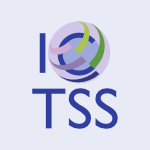 IWTCS-1999-Cavalli #protocol #testing
IWTCS-1999-Cavalli #protocol #testing- Different Approaches to Protocol and Service Testing (ARC), pp. 3–18.
 ITiCSE-1998-King #education #evaluation #student #topic
ITiCSE-1998-King #education #evaluation #student #topic- An evaluation of strategies for teaching technical computing topics to students at different levels (poster) (CK), p. 285.
 ITiCSE-1998-MooreS #c #learning #multi #programming
ITiCSE-1998-MooreS #c #learning #multi #programming- A multimedia C programming course that supports different learning situations (poster) (SM, MS), p. 295.
 ESOP-1998-FechtS #algorithm #constraints #difference #fixpoint #performance
ESOP-1998-FechtS #algorithm #constraints #difference #fixpoint #performance- Propagating Differences: An Efficient New Fixpoint Algorithm for Distributive Constraint Systems (CF, HS), pp. 90–104.
 CSMR-1998-SeemannG #difference #object-oriented #visualisation
CSMR-1998-SeemannG #difference #object-oriented #visualisation- Visualization of Differences between Versions of Object-Oriented Software (JS, JWvG), pp. 201–204.
 ICPR-1998-PengZB #automation #recognition
ICPR-1998-PengZB #automation #recognition- A fully automated face recognition system under different conditions (HP, CZ, ZB), pp. 1223–1225.
 ICPR-1998-SchechnerK #how #question
ICPR-1998-SchechnerK #how #question- Depth from defocus vs. stereo: how different really are they? (YYS, NK), pp. 1784–1786.
 KDD-1998-Stolfo #classification #database #mining
KDD-1998-Stolfo #classification #database #mining- Mining Databases with Different Schemas: Integrating Incompatible Classifiers (ALP, SJS), pp. 314–318.
 KR-1998-Morik #how #requirements
KR-1998-Morik #how #requirements- How to Tailor Representations to Different Requirements (KM), p. 650.
 EDTC-1997-Schneider #abstraction #architecture #hardware #trade-off
EDTC-1997-Schneider #abstraction #architecture #hardware #trade-off- A methodology for hardware architecture trade-off at different levels of abstraction (CS), pp. 537–541.
 ICDAR-1997-KawataniS #classification #component #design #difference #using
ICDAR-1997-KawataniS #classification #component #design #difference #using- Complementary Classifier Design Using Difference Principal Components (TK, HS), pp. 875–880.
 PODS-1997-Shoshani #database #difference #statistics
PODS-1997-Shoshani #database #difference #statistics- OLAP and Statistical Databases: Similarities and Differences (AS), pp. 185–196.
 ITiCSE-1997-Naps #algorithm #difference #exclamation #java #visualisation #web
ITiCSE-1997-Naps #algorithm #difference #exclamation #java #visualisation #web- Algorithm visualization on the World Wide Web — the difference Java makes! (TLN), pp. 59–61.
 CHI-1997-BalakrishnanM #difference #performance
CHI-1997-BalakrishnanM #difference #performance- Performance Differences in the Fingers, Wrist, and Forearm in Computer Input Control (RB, ISM), pp. 303–310.
 CHI-1997-Golovchinsky #difference #query #question
CHI-1997-Golovchinsky #difference #query #question- Queries? Links? Is there a Difference? (GG), pp. 407–414.
 HCI-CC-1997-ShimizuSSSTIY #difference
HCI-CC-1997-ShimizuSSSTIY #difference- Differences of Force Distribution Patterns on Grip Types in Human Grasping Motions (SS, MS, SS, YS, AT, YI, MY), pp. 425–428.
 HCI-SEC-1997-DeisingerCRS #comparison #monitoring
HCI-SEC-1997-DeisingerCRS #comparison #monitoring- The Effect of Different Viewing Devices for the Sense of Presence of Immersion in Virtual Environments: A Comparison of Stereoprojections Based on Monitors, HMDs and Screens (JD, CCN, OR, JS), pp. 881–884.
 HCI-SEC-1997-KondoSYN #concept #detection #difference #information management #interactive #interface
HCI-SEC-1997-KondoSYN #concept #detection #difference #information management #interactive #interface- Interactive Interfaces to Detect Conceptual Difference for Knowledge Acquisition (TK, NS, TY, SN), pp. 303–306.
 HCI-SEC-1997-NordbottenC #comprehension #difference
HCI-SEC-1997-NordbottenC #comprehension #difference- Individual User Differences in Data Model Comprehension (JCN, MEC), pp. 663–666.
 HCI-SEC-1997-Umemuro #difference #effectiveness
HCI-SEC-1997-Umemuro #difference #effectiveness- Age Differences Between Elderly and Young Workers in Effectiveness of Computer Skill Training and Task Cognition (HU), pp. 177–180.
 CIKM-1997-BozkayaYO #sequence
CIKM-1997-BozkayaYO #sequence- Matching and Indexing Sequences of Different Lengths (TB, NY, ZMÖ), pp. 128–135.
 ICSE-1997-ShimaTMT #case study #fault
ICSE-1997-ShimaTMT #case study #fault- A Study on the Failure Intensity of Different Software Faults (KS, ST, KiM, KT), pp. 86–94.
 ICALP-1996-Mossakowski #framework #logic
ICALP-1996-Mossakowski #framework #logic- Different Types of Arrow Between Logical Frameworks (TM), pp. 158–169.
 CHI-1996-DouglasK #difference #modelling #question
CHI-1996-DouglasK #difference #modelling #question- Do Color Models Really Make a Difference? (SAD, TK), p. 399–?.
 CHI-1996-MithalD #difference
CHI-1996-MithalD #difference- Differences in Movement Microstructure of the Mouse and the Finger-Controlled Isometric Joystick (AKM, SAD), pp. 300–307.
 CHI-1996-SawyerFW #difference
CHI-1996-SawyerFW #difference- Making a Difference — the Impact of Inspections (PS, AF, DRW), pp. 376–382.
 TRI-Ada-1996-Gramp #architecture #communication #comparison #mobile
TRI-Ada-1996-Gramp #architecture #communication #comparison #mobile- A Comparison of Different Tasking Architectures Used in Mobile Satellite Communication Ground Station Software (KJG), pp. 23–28.
 TRI-Ada-1996-RybinS #ada #difference
TRI-Ada-1996-RybinS #ada #difference- Ada and ASIS: Justification of Differences in Terminology and Mechanisms (SR, AS), pp. 249–254.
 CIKM-1996-Shoshani #database #difference #statistics
CIKM-1996-Shoshani #database #difference #statistics- OLAP and Statistical Databases: Similarities and Differences (AS), p. 5.
 ICML-1996-PendrithR #difference #learning
ICML-1996-PendrithR #difference #learning- Actual Return Reinforcement Learning versus Temporal Differences: Some Theoretical and Experimental Results (MDP, MRKR), pp. 373–381.
 ICPR-1996-AkhmetshinL #difference #fourier #image #principle #re-engineering
ICPR-1996-AkhmetshinL #difference #fourier #image #principle #re-engineering- The reconstruction of signals and images from the noisy Fourier transform phase by means of the generalized difference principle (AMA, IL), pp. 370–375.
 ICPR-1996-Melichar #automaton #difference #finite #string
ICPR-1996-Melichar #automaton #difference #finite #string- String matching with k differences by finite automata (BM), pp. 256–260.
 ICSE-1996-Zamperoni #development #graph #named #re-engineering
ICSE-1996-Zamperoni #development #graph #named #re-engineering- GRIDS — GRaph-based, Integrated Development of Software: Integrating Different Perspectives of Software Engineering (AZ), pp. 48–59.
 CADE-1996-EglyR #normalisation #on the
CADE-1996-EglyR #normalisation #on the- On the Practical Value of Different Definitional Translations to Normal Form (UE, TR), pp. 403–417.
 CAV-1996-CamposG #analysis #model checking #verification
CAV-1996-CamposG #analysis #model checking #verification- Selective Quantitative Analysis and Interval Model Checking: Verifying Different Facets of a System (SVAC, OG), pp. 257–268.
 KBSE-1995-LindenV #development #interface
KBSE-1995-LindenV #development #interface- An Interface Between Different Software Development Environments (GL, AIV), pp. 79–87.
 VLDB-1995-Vaskevitch #database #how #question #scalability
VLDB-1995-Vaskevitch #database #how #question #scalability- Very Large Databases: How Large, How Different? (DV), pp. 677–685.
 AdaEurope-1995-Bossard #ada #assessment #design #modelling #realtime
AdaEurope-1995-Bossard #ada #assessment #design #modelling #realtime- Periodic Processing in Hard Real-Time Systems: Assessment of Different Design Models in Ada (FB), pp. 355–364.
 ICML-1995-CichoszM #difference #learning #performance
ICML-1995-CichoszM #difference #learning #performance- Fast and Efficient Reinforcement Learning with Truncated Temporal Differences (PC, JJM), pp. 99–107.
 SEKE-1995-VerkamoL #development #problem #tool support
SEKE-1995-VerkamoL #development #problem #tool support- Problems in Interfacing Tools of Different Development Environments (AIV, GL), pp. 429–437.
 SIGIR-1995-Iivonen #consistency #difference
SIGIR-1995-Iivonen #consistency #difference- Searchers and Searchers: Differences between the Most and Least Consistent Searchers (MI), pp. 149–157.
 SIGIR-1995-Lee #multi
SIGIR-1995-Lee #multi- Combining Multiple Evidence from Different Properties of Weighting Schemes (JHL), pp. 180–188.
 SIGIR-1995-Riloff #classification #difference #word
SIGIR-1995-Riloff #classification #difference #word- Little Words Can Make a Big Difference for Text Classification (ER), pp. 130–136.
 FME-1994-MaungHM #formal method #towards
FME-1994-MaungHM #formal method #towards- Towards a Formalization of Programming-by-Difference (IM, JH, RJM), pp. 134–153.
 ICML-1994-SchapireW #algorithm #analysis #learning #on the #worst-case
ICML-1994-SchapireW #algorithm #analysis #learning #on the #worst-case- On the Worst-Case Analysis of Temporal-Difference Learning Algorithms (RES, MKW), pp. 266–274.
 KR-1994-Teege #difference #logic
KR-1994-Teege #difference #logic- Making the Difference: A Subtraction Operation for Description Logics (GT), pp. 540–550.
 PLILP-1994-MoreauQ #continuation #difference
PLILP-1994-MoreauQ #continuation #difference- Partial Continuations as the Difference of Continuations — A Duumvirate of Control Operators (LM, CQ), pp. 182–197.
 ICSE-1994-PorterV #detection #empirical #fault #requirements
ICSE-1994-PorterV #detection #empirical #fault #requirements- An Experiment to Assess Different Defect Detection Methods for Software Requirements Inspections (AAP, LGV), pp. 103–112.
 HPDC-1994-NguyenZZ #distributed #problem #using
HPDC-1994-NguyenZZ #distributed #problem #using- Distributed Computation of Electromagnetic Scattering Problems Using Finite-Difference Time-Domain Decompositions (SN, BJZ, XZ), pp. 85–89.
 HPDC-1994-SrbljicVB #consistency #distributed #memory management #performance #predict
HPDC-1994-SrbljicVB #consistency #distributed #memory management #performance #predict- Performance Prediction for Different Consistency Schemes in Distributed Shared Memory Systems (SS, ZGV, LB), pp. 295–302.
 FME-1993-FischerPV
FME-1993-FischerPV- Different FDT’s Confronted with Different ODP-Viewpoints of the Trader (JF, AP, AV), pp. 332–350.
 HCI-ACS-1993-Seppala #case study #experience
HCI-ACS-1993-Seppala #case study #experience- Experiences on Computerization in Different Occupational Groups: A Study in Municipal Workplaces (PKS), pp. 988–993.
 HCI-ACS-1993-WeberU #evaluation
HCI-ACS-1993-WeberU #evaluation- Psychological Criteria for the Evaluation of Different Forms of Group Work in Advanced Manufacturing Systems (WGW, EU), pp. 26–31.
 HCI-SHI-1993-Gautsch #analysis #architecture #difference #hypermedia
HCI-SHI-1993-Gautsch #analysis #architecture #difference #hypermedia- An Analysis of Hypermedia Program Architecture with Individual Differences of Learners (SG), pp. 482–487.
 HCI-SHI-1993-KamalaSC #difference #multi #student
HCI-SHI-1993-KamalaSC #difference #multi #student- Individual Differences in the Use of Hyper/Multimedia by Undergraduate Students at the University of Hawaii at Manoa (TNK, JS, MEC), pp. 507–512.
 AdaEurope-1993-MancusiTRSPB #architecture
AdaEurope-1993-MancusiTRSPB #architecture- Real and Virtual Interrupt Support: The Mapping of a CARTS Feature to Two Different Architectures (RM, JLT, MR, ENS, MP, CLB), pp. 314–329.
 AdaEurope-1992-Do #ada #challenge #compilation #integration #reuse
AdaEurope-1992-Do #ada #challenge #compilation #integration #reuse- Compilation Integration: A Solution for the Challenge of Developing and Reusing Ada Software on Different Platforms (TND), pp. 230–241.
 ML-1992-Tesauro #difference #learning
ML-1992-Tesauro #difference #learning- Temporal Difference Learning of Backgammon Strategy (GT), pp. 451–457.
 SIGIR-1992-AgostiM #database #design #library #multi
SIGIR-1992-AgostiM #database #design #library #multi- Design of an OPAC Database to Permit Different Subject Searching Accesses in a Multi-Disciplines Universities Library Catalogue Database (MA, MM), pp. 245–255.
 SIGIR-1992-Allen #difference
SIGIR-1992-Allen #difference- Cognitive Differences in End User Searching of a CD-ROM Index (BA), pp. 298–309.
 CADE-1992-BasinW #difference
CADE-1992-BasinW #difference- Difference Matching (DAB, TW), pp. 295–309.
 AdaEurope-1991-GilbertTB #ada #embedded #experience #process #realtime #using
AdaEurope-1991-GilbertTB #ada #embedded #experience #process #realtime #using- Experience Developing two Ada Applications for Embedded Real-Time Systems Using Different Software Processes (BG, MT, GB), pp. 394–403.
 KR-1991-KatsunoM #difference #knowledge base #on the
KR-1991-KatsunoM #difference #knowledge base #on the- On the Difference between Updating a Knowledge Base and Revising It (HK, AOM), pp. 387–394.
 IWPTS-1991-CorbiS #embedded #protocol #testing
IWPTS-1991-CorbiS #embedded #protocol #testing- Common Abstract Test Suite for the Connection Oriented Presentation Protocol Embedded Under Different Application Contexts (CC, GS), pp. 143–149.
 DAC-1990-Spreitzer #design
DAC-1990-Spreitzer #design- Comparing Structurally Different Views of a VLSI Design (MS), pp. 200–212.
 PLDI-1990-Horwitz #difference #identification #semantics
PLDI-1990-Horwitz #difference #identification #semantics- Identifying the Semantic and Textual Differences Between Two Versions of a Program (SH), pp. 234–245.
 ML-1990-RamseyGS #contest #difference #learning
ML-1990-RamseyGS #contest #difference #learning- Simulation-Assisted Learning by Competition: Effects of Noise Differences Between Training Model and Target Environment (CLR, JJG, ACS), pp. 211–215.
 SEKE-1990-Blum #approach #knowledge-based #re-engineering
SEKE-1990-Blum #approach #knowledge-based #re-engineering- Knowledge-Based Software Engineering: A Different Approach (BIB), pp. 1–6.
 CHI-1989-Gutierrez #problem #prototype
CHI-1989-Gutierrez #problem #prototype- Prototyping techniques for different problem contexts (OG), pp. 259–264.
 STOC-1988-HalstenbergR #communication #on the
STOC-1988-HalstenbergR #communication #on the- On Different Modes of Communication (Extended Abstract) (BH, RR), pp. 162–172.
 CSCW-1988-Bly #collaboration
CSCW-1988-Bly #collaboration- A Use of Drawing Surfaces in Different Collaborative Settings (SAB), pp. 250–256.
 DAC-1987-DevadasMN #abstraction #on the #verification
DAC-1987-DevadasMN #abstraction #on the #verification- On the Verification of Sequential Machines at Differing Levels of Abstraction (SD, HKTM, ARN), pp. 271–276.
 HCI-CE-1987-Kitto #information management #paradigm #problem #research #tool support
HCI-CE-1987-Kitto #information management #paradigm #problem #research #tool support- Knowledge Acquisition Tools for Different Problem-Solving Paradigms Research at Boeing Computing Services (CMK), pp. 515–522.
 HCI-CE-1987-Ulich #concept #difference #human-computer #interactive #research
HCI-CE-1987-Ulich #concept #difference #human-computer #interactive #research- Individual Differences in Human-Computer Interaction: Concepts and Research Findings (EU), pp. 29–36.
 SIGIR-1987-Borgman #difference #information retrieval
SIGIR-1987-Borgman #difference #information retrieval- Individual Differences in the Use of Information Retrieval Systems: Some Issues and Some Data (CLB), pp. 61–71.
 OOPSLA-1987-SmithZ #case study #database #difference #named #object-oriented #relational
OOPSLA-1987-SmithZ #case study #database #difference #named #object-oriented #relational- Intermedia: A Case Study of the Differences Between Relational and Object-Oriented Database Systems (KES, SBZ), pp. 452–465.
 DAC-1986-Daehn #difference #fault
DAC-1986-Daehn #difference #fault- A unified treatment of PLA faults by Boolean differences (WD), pp. 334–338.
 SIGIR-1986-Thurmair #architecture #information retrieval
SIGIR-1986-Thurmair #architecture #information retrieval- A Common Architecture for Different Text Processing Techniques in an Information Retrieval Environment (GT), pp. 138–143.
 SIGIR-1985-Defude #information retrieval
SIGIR-1985-Defude #information retrieval- Different Levels of Expertise for An Expert System in Information Retrieval (BD), pp. 147–153.
 ICALP-1984-Schoning #algorithm #approach #robust
ICALP-1984-Schoning #algorithm #approach #robust- Robust Algorithms: A Different Approach to Oracles (US), pp. 448–453.
 ICSE-1984-Curtis #difference #re-engineering
ICSE-1984-Curtis #difference #re-engineering- Fifteen Years of Psychology in Software Engineering: Individual Differences and Cognitive Science (BC), pp. 97–107.
 ICALP-1983-HartmanisHY #set
ICALP-1983-HartmanisHY #set- Computation Times of NP Sets of Different Densities (JH, YY), pp. 319–330.
 STOC-1981-ArjomandiFL #difference #performance
STOC-1981-ArjomandiFL #difference #performance- A Difference in Efficiency between Synchronous and Asynchronous Systems (EA, MJF, NAL), pp. 128–132.
 SIGIR-1981-Croft #documentation #modelling #retrieval
SIGIR-1981-Croft #documentation #modelling #retrieval- Incorporating Different Search Models into One Document Retrieval System (WBC), pp. 40–45.
 POPL-1980-Kfoury #analysis #set #source code
POPL-1980-Kfoury #analysis #set #source code- Analysis of Simple Programs Over Different Sets of Primitives (AJK), pp. 56–61.
 VLDB-1979-Hardgrave #ambiguity #case study #query
VLDB-1979-Hardgrave #ambiguity #case study #query- Ambiguity in Processing Boolean Queries on TDMS Tree Structures: A Study of Four Different Philosophies (WTH), pp. 373–397.
 ICALP-1979-Hartmanis #on the
ICALP-1979-Hartmanis #on the- On the Succintness of Different Representations of Languages (JH), pp. 282–288.
 VLDB-1978-SagivY #difference #equivalence #relational
VLDB-1978-SagivY #difference #equivalence #relational- Equivalence among Relational Expressions with the Union and Difference Operation (YS, MY), pp. 535–548.
 ICALP-1978-Toffoli #integration #network
ICALP-1978-Toffoli #integration #network- Integration of the Phase-Difference Relations in Asynchronous Sequential Networks (TT), pp. 457–463.
 ICALP-1977-Simon #difference #on the
ICALP-1977-Simon #difference #on the- On the Difference Between One and Many (Preliminary Version) (JS), pp. 480–491.
 VLDB-1976-NahouraiiBC #approach #communication #database
VLDB-1976-NahouraiiBC #approach #communication #database- An Approach to Data Communication between Different Generalized Data Base Management Systems (EN, LOB, AFC), pp. 117–142.
 DAC-1975-ThompsonS #fault #simulation
DAC-1975-ThompsonS #fault #simulation- Three levels of accuracy for the simulation of different fault types in digital systems (EWT, SAS), pp. 105–113.
 VLDB-1975-Zimmerman #database #network #relational
VLDB-1975-Zimmerman #database #network #relational- Different Views of a Data Base: Coexistence between Network Model and Relational Model (KZ), pp. 535–537.
 CASE-2015-MeddouriDF #analysis #generative #induction #performance #predict #using
CASE-2015-MeddouriDF #analysis #generative #induction #performance #predict #using ITiCSE-2015-AhadiPBL #query #sql
ITiCSE-2015-AhadiPBL #query #sql ITiCSE-2015-WangHRI #difference #gender
ITiCSE-2015-WangHRI #difference #gender ICSME-2015-MondalRS #case study #comparative
ICSME-2015-MondalRS #case study #comparative SEFM-2015-HusterBELRKR #performance #testing
SEFM-2015-HusterBELRKR #performance #testing CHI-2015-CecchinatoCB #bound #difference #email
CHI-2015-CecchinatoCB #bound #difference #email CHI-2015-EngelWACTNKKM #collaboration
CHI-2015-EngelWACTNKKM #collaboration CHI-2015-JohnsonNW #all about #case study #experience #game studies #video
CHI-2015-JohnsonNW #all about #case study #experience #game studies #video CHI-2015-JohnsonWCW #difference #experience #game studies #process
CHI-2015-JohnsonWCW #difference #experience #game studies #process CHI-2015-MeutznerGK #difference
CHI-2015-MeutznerGK #difference CHI-2015-PaayKSLR #comprehension #difference
CHI-2015-PaayKSLR #comprehension #difference CHI-2015-ShihBHC
CHI-2015-ShihBHC CHI-2015-Vicencio-Moreira #game studies
CHI-2015-Vicencio-Moreira #game studies CSCW-2015-BazarovaCSCW #difference #facebook #social
CSCW-2015-BazarovaCSCW #difference #facebook #social CSCW-2015-DaiRPC #crowdsourcing #workflow
CSCW-2015-DaiRPC #crowdsourcing #workflow DHM-HM-2015-EndoYASSH #difference #process
DHM-HM-2015-EndoYASSH #difference #process DHM-HM-2015-FujiwaraSKFETY
DHM-HM-2015-FujiwaraSKFETY DHM-HM-2015-IkenoboWSG #difference #how
DHM-HM-2015-IkenoboWSG #difference #how DHM-HM-2015-KanazawaOWTTGH #experience #performance #research
DHM-HM-2015-KanazawaOWTTGH #experience #performance #research DHM-HM-2015-SugimotoINYG #difference #process
DHM-HM-2015-SugimotoINYG #difference #process DUXU-UI-2015-HeidtKBR #difference #gender #human-computer
DUXU-UI-2015-HeidtKBR #difference #gender #human-computer DUXU-UI-2015-HwangLJ #difference #gender #smarttech #user interface #verification #women
DUXU-UI-2015-HwangLJ #difference #gender #smarttech #user interface #verification #women DUXU-UI-2015-LiHF #quality #requirements #scalability #user interface #using
DUXU-UI-2015-LiHF #quality #requirements #scalability #user interface #using DUXU-UI-2015-Nawrot #data analysis #difference #gender #question #towards #women
DUXU-UI-2015-Nawrot #data analysis #difference #gender #question #towards #women HCI-IT-2015-DibitontoM #automation #performance
HCI-IT-2015-DibitontoM #automation #performance HIMI-IKC-2015-ChongS #difference
HIMI-IKC-2015-ChongS #difference HIMI-IKC-2015-Iwata #difference #learning
HIMI-IKC-2015-Iwata #difference #learning ICEIS-v1-2015-YakhyaevaY #algorithm
ICEIS-v1-2015-YakhyaevaY #algorithm ECIR-2015-JonesSTMS
ECIR-2015-JonesSTMS KDD-2015-ZhaoJCJ #estimation #parametricity #performance #quality
KDD-2015-ZhaoJCJ #estimation #parametricity #performance #quality SIGIR-2015-CapraACV #complexity #difference
SIGIR-2015-CapraACV #complexity #difference SIGIR-2015-GwizdkaZ #difference #metric #web
SIGIR-2015-GwizdkaZ #difference #metric #web SIGIR-2015-LiuCTS0MZ #predict
SIGIR-2015-LiuCTS0MZ #predict SIGIR-2015-WangSLE #difference #generative #timeline #twitter
SIGIR-2015-WangSLE #difference #generative #timeline #twitter MoDELS-2015-MaozR #difference #framework #semantics
MoDELS-2015-MaozR #difference #framework #semantics PPDP-2015-GallF #formal method #semantics
PPDP-2015-GallF #formal method #semantics ISSTA-2015-WangZT #case study #execution #experience #how #symbolic computation #testing
ISSTA-2015-WangZT #case study #execution #experience #how #symbolic computation #testing SAT-2015-Oh #difference #satisfiability
SAT-2015-Oh #difference #satisfiability DATE-2014-SchlichtmannKAEGGHNW #abstraction #design
DATE-2014-SchlichtmannKAEGGHNW #abstraction #design ITiCSE-2014-LakanenIL #comprehension #difference #student
ITiCSE-2014-LakanenIL #comprehension #difference #student ICSME-2014-PanichellaBPCA #developer #how
ICSME-2014-PanichellaBPCA #developer #how SCAM-2014-Abi-AntounCVG #abstract interpretation #graph #question #using
SCAM-2014-Abi-AntounCVG #abstract interpretation #graph #question #using ICALP-v2-2014-KosowskiP #case study #difference
ICALP-v2-2014-KosowskiP #case study #difference CHI-2014-CareniniCHSTE #adaptation #difference #visualisation
CHI-2014-CareniniCHSTE #adaptation #difference #visualisation CHI-2014-Gilbert #performance #social #what
CHI-2014-Gilbert #performance #social #what CHI-2014-HuangTTTYCHC #named #using
CHI-2014-HuangTTTYCHC #named #using CHI-2014-KriglsteinWP #case study #visualisation
CHI-2014-KriglsteinWP #case study #visualisation CSCW-2014-Flanagan #design #difference
CSCW-2014-Flanagan #design #difference CSCW-2014-GrevetTG #difference #social #social media
CSCW-2014-GrevetTG #difference #social #social media DHM-2014-FurukawaTGKK #evaluation
DHM-2014-FurukawaTGKK #evaluation DHM-2014-OtaWKTGH #comparison #process
DHM-2014-OtaWKTGH #comparison #process DUXU-ELAS-2014-KuruK #design #difference #gender #health
DUXU-ELAS-2014-KuruK #design #difference #gender #health DUXU-ELAS-2014-MontAlvao #bibliography #health #using
DUXU-ELAS-2014-MontAlvao #bibliography #health #using DUXU-TMT-2014-SchreppHT #evaluation #experience #user interface
DUXU-TMT-2014-SchreppHT #evaluation #experience #user interface HCI-AS-2014-PortouliP #adaptation #multi
HCI-AS-2014-PortouliP #adaptation #multi HCI-AS-2014-ZhaoSR #difference #in the cloud
HCI-AS-2014-ZhaoSR #difference #in the cloud HCI-AS-2014-ZiesemerBMOS #case study #difference #gender #matter
HCI-AS-2014-ZiesemerBMOS #case study #difference #gender #matter HCI-TMT-2014-HeidtPBR #communication
HCI-TMT-2014-HeidtPBR #communication HIMI-AS-2014-HsiaoH #difference #recognition
HIMI-AS-2014-HsiaoH #difference #recognition HIMI-DE-2014-TakahashiA #comparison #comprehension #difference #mining #using
HIMI-DE-2014-TakahashiA #comparison #comprehension #difference #mining #using LCT-TRE-2014-EradzeL #design #interactive #learning
LCT-TRE-2014-EradzeL #design #interactive #learning SCSM-2014-FraidakiPD #how #information management #process #social #social media
SCSM-2014-FraidakiPD #how #information management #process #social #social media SCSM-2014-WhittyDCH #image #online
SCSM-2014-WhittyDCH #image #online ICEIS-v3-2014-GhezziCRB #framework #rest
ICEIS-v3-2014-GhezziCRB #framework #rest CIKM-2014-LiuLB #predict
CIKM-2014-LiuLB #predict CIKM-2014-NtoutsiSRK #clustering #difference #quote #recommendation
CIKM-2014-NtoutsiSRK #clustering #difference #quote #recommendation CIKM-2014-ShaoKTG #case study #complexity #distance #navigation #network #query
CIKM-2014-ShaoKTG #case study #complexity #distance #navigation #network #query ICPR-2014-BertoliniOJS #identification
ICPR-2014-BertoliniOJS #identification ICPR-2014-GilaniM #3d #difference #perspective #women
ICPR-2014-GilaniM #3d #difference #perspective #women ICPR-2014-MoilanenZP #agile #analysis #difference #using
ICPR-2014-MoilanenZP #agile #analysis #difference #using ICPR-2014-SavakisRP #difference #gesture #learning #using
ICPR-2014-SavakisRP #difference #gesture #learning #using ICPR-2014-SicreTG #difference #image
ICPR-2014-SicreTG #difference #image ICPR-2014-SinghKZ #detection #difference #image #markov #multi #scalability
ICPR-2014-SinghKZ #detection #difference #image #markov #multi #scalability ICPR-2014-SongSLZZC #detection #image
ICPR-2014-SongSLZZC #detection #image KMIS-2014-Bures #aspect-oriented #case study #difference #xml
KMIS-2014-Bures #aspect-oriented #case study #difference #xml KR-2014-LudwigK #difference #logic
KR-2014-LudwigK #difference #logic RecSys-2014-EkstrandHWK #algorithm #difference #recommendation
RecSys-2014-EkstrandHWK #algorithm #difference #recommendation SIGIR-2014-GolbusA #difference #modelling #on the #retrieval #standard
SIGIR-2014-GolbusA #difference #modelling #on the #retrieval #standard SIGIR-2014-KharazmiSSV #difference #using
SIGIR-2014-KharazmiSSV #difference #using SAC-2014-JungSWCP #difference #retrieval
SAC-2014-JungSWCP #difference #retrieval ICSE-2014-LinXXLPSZ #detection #difference #multi
ICSE-2014-LinXXLPSZ #detection #difference #multi ICSE-2014-Murphy-HillZN #development #game studies #how #quality #question #video
ICSE-2014-Murphy-HillZN #development #game studies #how #quality #question #video SLE-J-2012-GuizzardiZ #concept #modelling #ontology #using
SLE-J-2012-GuizzardiZ #concept #modelling #ontology #using QoSA-2013-KlattK #analysis #architecture #difference
QoSA-2013-KlattK #analysis #architecture #difference ITiCSE-2013-Luxton-ReillyDKTY #difference #on the #student
ITiCSE-2013-Luxton-ReillyDKTY #difference #on the #student FASE-2013-ZhongTX #api #behaviour #difference
FASE-2013-ZhongTX #api #behaviour #difference ICSM-2013-FontanaFMWM #empirical #quality #smell
ICSM-2013-FontanaFMWM #empirical #quality #smell WCRE-2013-HayashiTS #difference #java #named #refactoring
WCRE-2013-HayashiTS #difference #java #named #refactoring LATA-2013-MerweFG #difference #symmetry
LATA-2013-MerweFG #difference #symmetry CHI-2013-FindlaterFFWD #difference #performance
CHI-2013-FindlaterFFWD #difference #performance CHI-2013-GaoWCF #experience
CHI-2013-GaoWCF #experience CSCW-2013-ReineckeNBNG #behaviour #difference #online #scheduling
CSCW-2013-ReineckeNBNG #behaviour #difference #online #scheduling CSCW-2013-Velden #community #difference
CSCW-2013-Velden #community #difference DHM-SET-2013-SaparovaBLKMY #health #how #information management #problem #question #usability #what
DHM-SET-2013-SaparovaBLKMY #health #how #information management #problem #question #usability #what DUXU-CXC-2013-Heimgartner #design #human-computer #question #user interface
DUXU-CXC-2013-Heimgartner #design #human-computer #question #user interface DUXU-CXC-2013-SturmSG #locality #performance
DUXU-CXC-2013-SturmSG #locality #performance DUXU-NTE-2013-ChuangH #case study #difference
DUXU-NTE-2013-ChuangH #case study #difference DUXU-PMT-2013-BellowsHY #approach #design #difference #research
DUXU-PMT-2013-BellowsHY #approach #design #difference #research DUXU-WM-2013-KimJ13a #case study #difference #experience #user interface
DUXU-WM-2013-KimJ13a #case study #difference #experience #user interface HCI-AS-2013-AndujarEGM #learning
HCI-AS-2013-AndujarEGM #learning HCI-AS-2013-HuaG #comprehension #difference #evaluation #predict #protocol #safety #usability
HCI-AS-2013-HuaG #comprehension #difference #evaluation #predict #protocol #safety #usability HCI-III-2013-KimKAPW #analysis #artificial reality #social
HCI-III-2013-KimKAPW #analysis #artificial reality #social HIMI-D-2013-ChangC #case study
HIMI-D-2013-ChangC #case study HIMI-D-2013-SilvaZGBSV #question
HIMI-D-2013-SilvaZGBSV #question OCSC-2013-LopezFM #behaviour
OCSC-2013-LopezFM #behaviour ICEIS-v3-2013-BittencourtBDPB #adaptation #multi #user interface
ICEIS-v3-2013-BittencourtBDPB #adaptation #multi #user interface ICEIS-v3-2013-DelgadoM #difference #social
ICEIS-v3-2013-DelgadoM #difference #social ICEIS-v3-2013-HsuK #case study
ICEIS-v3-2013-HsuK #case study ICML-c3-2013-TamarCM #difference
ICML-c3-2013-TamarCM #difference KDIR-KMIS-2013-RaafatZR #database #named #semantics
KDIR-KMIS-2013-RaafatZR #database #named #semantics KDIR-KMIS-2013-StroetmannLOE #difference #information management #performance #quality
KDIR-KMIS-2013-StroetmannLOE #difference #information management #performance #quality RecSys-2013-ZhengI #effectiveness
RecSys-2013-ZhengI #effectiveness SEKE-2013-IqbalKH #behaviour #communication #developer #social
SEKE-2013-IqbalKH #behaviour #communication #developer #social SIGIR-2013-AktolgaA #bias #sentiment
SIGIR-2013-AktolgaA #bias #sentiment ECMFA-2013-KusterVFBC #process
ECMFA-2013-KusterVFBC #process SAC-2013-HorieS #difference
SAC-2013-HorieS #difference SAC-2013-KawakamiIYT #communication #data type
SAC-2013-KawakamiIYT #communication #data type SAC-2013-KhaniHAB #algorithm #clustering #semistructured data #set
SAC-2013-KhaniHAB #algorithm #clustering #semistructured data #set ICSE-2013-SumnerZ #comparative #difference
ICSE-2013-SumnerZ #comparative #difference PPoPP-2013-YuB #automaton #performance #regular expression
PPoPP-2013-YuB #automaton #performance #regular expression CADE-2013-GangeSSS #composition #constraints #difference
CADE-2013-GangeSSS #composition #constraints #difference DATE-2012-ChatziparaskevasBP #difference #finite #parallel #using
DATE-2012-ChatziparaskevasBP #difference #finite #parallel #using DATE-2012-KnothJS #analysis #modelling
DATE-2012-KnothJS #analysis #modelling DATE-2012-PerinTBM #analysis #implementation
DATE-2012-PerinTBM #analysis #implementation DocEng-2012-KimBTFD #comparison #evaluation #parsing #tool support
DocEng-2012-KimBTFD #comparison #evaluation #parsing #tool support ITiCSE-2012-Urquiza-FuentesV #animation #education #effectiveness
ITiCSE-2012-Urquiza-FuentesV #animation #education #effectiveness ICPC-2012-SharafiSGA #identifier #source code #women
ICPC-2012-SharafiSGA #identifier #source code #women ICSM-2012-KehrerKOS #comprehension #difference #evolution #semantics
ICSM-2012-KehrerKOS #comprehension #difference #evolution #semantics CHI-2012-BentleyCHB
CHI-2012-BentleyCHB CHI-2012-ChinF #difference #health #learning
CHI-2012-ChinF #difference #health #learning CHI-2012-YardiB #difference #product line
CHI-2012-YardiB #difference #product line CAiSE-2012-AcherHCQLM #difference #feature model
CAiSE-2012-AcherHCQLM #difference #feature model ICEIS-J-2012-AyresS12a #mining #similarity
ICEIS-J-2012-AyresS12a #mining #similarity CIKM-2012-BlessingS #complexity
CIKM-2012-BlessingS #complexity CIKM-2012-MurakamiM #how #people #question #web
CIKM-2012-MurakamiM #how #people #question #web CIKM-2012-SandersonTZS #difference #effectiveness
CIKM-2012-SandersonTZS #difference #effectiveness ICML-2012-GeistSLG #approach #difference #learning
ICML-2012-GeistSLG #approach #difference #learning ICPR-2012-LiYLKZL #classification #multi #using
ICPR-2012-LiYLKZL #classification #multi #using ICPR-2012-ZhangLXL #difference #gesture #recognition
ICPR-2012-ZhangLXL #difference #gesture #recognition KDD-2012-DuivesteijnFK #distance #mining #modelling
KDD-2012-DuivesteijnFK #distance #mining #modelling KDD-2012-YuanZX #using
KDD-2012-YuanZX #using KEOD-2012-ReinosoOML #wiki
KEOD-2012-ReinosoOML #wiki KR-2012-HalpernK #ambiguity #difference
KR-2012-HalpernK #ambiguity #difference RecSys-2012-Parra #recommendation #visualisation
RecSys-2012-Parra #recommendation #visualisation SIGIR-2012-WangOL #difference #microblog
SIGIR-2012-WangOL #difference #microblog SIGIR-2012-WhiteR #difference #social
SIGIR-2012-WhiteR #difference #social REFSQ-2012-MahauxMH #how #people #requirements #why
REFSQ-2012-MahauxMH #how #people #requirements #why SAC-2012-MinervinidF #concept #learning #logic #probability
SAC-2012-MinervinidF #concept #learning #logic #probability ASPLOS-2012-KasikciZC #debugging #difference
ASPLOS-2012-KasikciZC #debugging #difference IJCAR-2012-KonevLW #difference #logic
IJCAR-2012-KonevLW #difference #logic ECSA-2011-NakagawaAB #architecture #difference #product line
ECSA-2011-NakagawaAB #architecture #difference #product line ASE-2011-KehrerKT #approach #difference #rule-based #semantics #version control
ASE-2011-KehrerKT #approach #difference #rule-based #semantics #version control CASE-2011-Vogel-HeuserS #approach #automation #modelling #usability
CASE-2011-Vogel-HeuserS #approach #automation #modelling #usability VLDB-2011-KhannaRT #database #difference #probability #query
VLDB-2011-KhannaRT #database #difference #probability #query ITiCSE-2011-SettleDD #difference #student
ITiCSE-2011-SettleDD #difference #student SEFM-2011-EggersRNF #analysis #hybrid #satisfiability
SEFM-2011-EggersRNF #analysis #hybrid #satisfiability CHI-2011-HayashiHC #authentication #security #visual notation
CHI-2011-HayashiHC #authentication #security #visual notation CHI-2011-ZhaoJ #difference #image #network #self #social #visual notation
CHI-2011-ZhaoJ #difference #image #network #self #social #visual notation CSCW-2011-RauLVKS #behaviour
CSCW-2011-RauLVKS #behaviour CSCW-2011-WangFC #difference
CSCW-2011-WangFC #difference DUXU-v1-2011-AuingerAKH #design #difference #question #web
DUXU-v1-2011-AuingerAKH #design #difference #question #web DUXU-v1-2011-DinetVB #community #design #difference #towards
DUXU-v1-2011-DinetVB #community #design #difference #towards DUXU-v1-2011-PrabhalaLG #people #question #what #word
DUXU-v1-2011-PrabhalaLG #people #question #what #word DUXU-v2-2011-KimJH #concept #design #experience #implementation #user interface
DUXU-v2-2011-KimJH #concept #design #experience #implementation #user interface DUXU-v2-2011-TsaoCY #case study #design #image
DUXU-v2-2011-TsaoCY #case study #design #image HCI-DDA-2011-KallinenER #difference #multi
HCI-DDA-2011-KallinenER #difference #multi HIMI-v1-2011-AhmadWHK #people #web
HIMI-v1-2011-AhmadWHK #people #web HIMI-v1-2011-ChiabrandoFGLL #configuration management #interface #ontology
HIMI-v1-2011-ChiabrandoFGLL #configuration management #interface #ontology HIMI-v1-2011-WuS #abstraction #source code #visualisation
HIMI-v1-2011-WuS #abstraction #source code #visualisation IDGD-2011-LiRH #communication #difference
IDGD-2011-LiRH #communication #difference IDGD-2011-ZhangFZ #feedback #visual notation
IDGD-2011-ZhangFZ #feedback #visual notation OCSC-2011-TsaiHT11a #behaviour #difference #metric
OCSC-2011-TsaiHT11a #behaviour #difference #metric AdaEurope-2011-Rodriguez-LopezG #abstraction #architecture #middleware #paradigm
AdaEurope-2011-Rodriguez-LopezG #abstraction #architecture #middleware #paradigm CAiSE-2011-BiderJS #architecture #case study #communication #experience #process #using
CAiSE-2011-BiderJS #architecture #case study #communication #experience #process #using ICEIS-v1-2011-GuGGL #case study
ICEIS-v1-2011-GuGGL #case study ICEIS-v1-2011-PiTX #communication #peer-to-peer
ICEIS-v1-2011-PiTX #communication #peer-to-peer CIKM-2011-GoncalvesPS #categorisation #difference #logic #ontology #owl
CIKM-2011-GoncalvesPS #categorisation #difference #logic #ontology #owl CIKM-2011-LeeLSY #difference #robust #symmetry #video
CIKM-2011-LeeLSY #difference #robust #symmetry #video ICML-2011-SunGRS #difference #fault #incremental
ICML-2011-SunGRS #difference #fault #incremental KDIR-2011-OzakiE #difference #empirical #estimation
KDIR-2011-OzakiE #difference #empirical #estimation MLDM-2011-SimeonH #approach #correlation #difference #mining #named #set
MLDM-2011-SimeonH #approach #correlation #difference #mining #named #set RecSys-2011-KnijnenburgRW #how #interactive #recommendation
RecSys-2011-KnijnenburgRW #how #interactive #recommendation SEKE-2011-KhoshgoftaarGN #case study #comparative #predict #quality
SEKE-2011-KhoshgoftaarGN #case study #comparative #predict #quality SIGIR-2011-AgeevGLA #game studies #interactive #modelling #using #web
SIGIR-2011-AgeevGLA #game studies #interactive #modelling #using #web SIGIR-2011-GossenLN #difference #web #what
SIGIR-2011-GossenLN #difference #web #what SIGIR-2011-TonellottoMO #order #retrieval
SIGIR-2011-TonellottoMO #order #retrieval SIGIR-2011-WanJHX #difference #multi
SIGIR-2011-WanJHX #difference #multi ECMFA-2011-AlferezACFKKKMMRZ #abstraction #aspect-oriented #development
ECMFA-2011-AlferezACFKKKMMRZ #abstraction #aspect-oriented #development MoDELS-2011-FahrenbergLW #difference #exclamation #semantics
MoDELS-2011-FahrenbergLW #difference #exclamation #semantics MoDELS-2011-FahrenbergLW #difference #exclamation #semantics
MoDELS-2011-FahrenbergLW #difference #exclamation #semantics OOPSLA-2011-PalmerS #difference #java #metaprogramming
OOPSLA-2011-PalmerS #difference #java #metaprogramming SAC-2011-FreitasHCFPWL
SAC-2011-FreitasHCFPWL SAC-2011-HorkoffY #how #modelling
SAC-2011-HorkoffY #how #modelling ICSE-2011-LiKZJNMK #difference
ICSE-2011-LiKZJNMK #difference DATE-2010-RickettsSRVP #power management
DATE-2010-RickettsSRVP #power management PODS-2010-BenderHK #performance
PODS-2010-BenderHK #performance VLDB-2011-SagyKSS10 #difference #distributed #query #representation
VLDB-2011-SagyKSS10 #difference #distributed #query #representation ITiCSE-2010-RagonisH #design #paradigm #programming
ITiCSE-2010-RagonisH #design #paradigm #programming MSR-2010-JuzgadoV #difference #re-engineering #using
MSR-2010-JuzgadoV #difference #re-engineering #using STOC-2010-ApplebaumBW #encryption
STOC-2010-ApplebaumBW #encryption CHI-2010-ChinF #difference #interactive #interface #performance
CHI-2010-ChinF #difference #interactive #interface #performance CHI-2010-DongF #difference #image
CHI-2010-DongF #difference #image EDOC-2010-VoelzG #quality #question #what
EDOC-2010-VoelzG #quality #question #what ICEIS-HCI-2010-ArmeniseBT #adaptation #automation #web
ICEIS-HCI-2010-ArmeniseBT #adaptation #automation #web ICEIS-HCI-2010-AstolfiMSA #difference #enterprise #people #problem #using
ICEIS-HCI-2010-AstolfiMSA #difference #enterprise #people #problem #using ECIR-2010-KapteinHK #how #modelling #question
ECIR-2010-KapteinHK #how #modelling #question ICML-2010-DowneyS #adaptation #difference
ICML-2010-DowneyS #adaptation #difference ICML-2010-Scherrer #difference #fixpoint #perspective
ICML-2010-Scherrer #difference #fixpoint #perspective ICML-2010-Yu #convergence #difference
ICML-2010-Yu #convergence #difference ICPR-2010-AbedM #framework #recognition #word
ICPR-2010-AbedM #framework #recognition #word ICPR-2010-CeolinH #difference #gender #metric #using
ICPR-2010-CeolinH #difference #gender #metric #using ICPR-2010-FausserS #approximate #learning
ICPR-2010-FausserS #approximate #learning ICPR-2010-IbbaDL #case study #set
ICPR-2010-IbbaDL #case study #set ICPR-2010-MakiharaHY #how #question
ICPR-2010-MakiharaHY #how #question ICPR-2010-Mirzaei #algorithm #clustering #multi #novel
ICPR-2010-Mirzaei #algorithm #clustering #multi #novel ICPR-2010-QuWL #difference #image #recognition #using
ICPR-2010-QuWL #difference #image #recognition #using KDIR-2010-ThanhYU #clustering #documentation #scalability #set #similarity
KDIR-2010-ThanhYU #clustering #documentation #scalability #set #similarity SAC-2010-BattistelliMMSS #documentation
SAC-2010-BattistelliMMSS #documentation SAC-2010-HoL #algorithm #constraints
SAC-2010-HoL #algorithm #constraints SAC-2010-RiosBKO #documentation #evaluation #set #word
SAC-2010-RiosBKO #documentation #evaluation #set #word ICSE-2010-LohK #difference #identification #named
ICSE-2010-LohK #difference #identification #named SAT-2010-Naveh #constraints #difference
SAT-2010-Naveh #constraints #difference DRR-2009-LiD #difference #independence #using #verification
DRR-2009-LiD #difference #independence #using #verification ICDAR-2009-PalWK #case study #classification #comparative #recognition #using
ICDAR-2009-PalWK #case study #classification #comparative #recognition #using ICDAR-2009-SantosKOSKB #evaluation #recognition
ICDAR-2009-SantosKOSKB #evaluation #recognition ICDAR-2009-ShivakumaraPT #detection #difference #video
ICDAR-2009-ShivakumaraPT #detection #difference #video VLDB-2009-BaoBDG #difference #named #workflow
VLDB-2009-BaoBDG #difference #named #workflow ITiCSE-2009-Perrenet #difference #student
ITiCSE-2009-Perrenet #difference #student ITiCSE-2009-Sondergaard #learning #student
ITiCSE-2009-Sondergaard #learning #student ICSM-2009-JiaSYL #data transformation #difference #predict #question #set
ICSM-2009-JiaSYL #data transformation #difference #predict #question #set WCRE-1999-BogdanovW99a #difference #modelling
WCRE-1999-BogdanovW99a #difference #modelling CHI-2009-WangFS #adaptation #communication #difference
CHI-2009-WangFS #adaptation #communication #difference DHM-2009-NiuLX #3d #clustering
DHM-2009-NiuLX #3d #clustering HCD-2009-AdnanND #approach #difference
HCD-2009-AdnanND #approach #difference HCD-2009-HashizumeKY #communication #difference
HCD-2009-HashizumeKY #communication #difference HCD-2009-LokmanHNN #analysis #difference #evaluation
HCD-2009-LokmanHNN #analysis #difference #evaluation HCD-2009-NaumannWS #concept #difference #experience #industrial #metric #usability #user interface
HCD-2009-NaumannWS #concept #difference #experience #industrial #metric #usability #user interface HCI-AUII-2009-IbenWK #feedback #smarttech #visual notation
HCI-AUII-2009-IbenWK #feedback #smarttech #visual notation HCI-AUII-2009-WeissKWMF #comparison
HCI-AUII-2009-WeissKWMF #comparison HCI-NT-2009-BeeldersBMD #interface #performance #prototype #using #word
HCI-NT-2009-BeeldersBMD #interface #performance #prototype #using #word HCI-NT-2009-Liu #design #difference #gender #industrial #interface
HCI-NT-2009-Liu #design #difference #gender #industrial #interface HCI-VAD-2009-AlsumaitAA #online
HCI-VAD-2009-AlsumaitAA #online HCI-VAD-2009-LiHLW #difference
HCI-VAD-2009-LiHLW #difference HIMI-DIE-2009-VuRR
HIMI-DIE-2009-VuRR IDGD-2009-AlostathAA #design #difference #identification #interface
IDGD-2009-AlostathAA #design #difference #identification #interface IDGD-2009-EuneL #behaviour #difference #mobile
IDGD-2009-EuneL #behaviour #difference #mobile IDGD-2009-Kang #design #e-commerce #web
IDGD-2009-Kang #design #e-commerce #web IDGD-2009-TranL #interface #question #research
IDGD-2009-TranL #interface #question #research EDOC-2009-MietznerUTL #multitenancy
EDOC-2009-MietznerUTL #multitenancy ECIR-2009-NamNLL #difference #named
ECIR-2009-NamNLL #difference #named ICML-2009-KolterN09a #difference #feature model #learning
ICML-2009-KolterN09a #difference #feature model #learning ICML-2009-Makino #network #predict #representation
ICML-2009-Makino #network #predict #representation ICML-2009-SuttonMPBSSW #approximate #learning #linear #performance
ICML-2009-SuttonMPBSSW #approximate #learning #linear #performance KDIR-2009-ClementeDCR #behaviour #classification #image
KDIR-2009-ClementeDCR #behaviour #classification #image MLDM-2009-Mendes-MoreiraJSS #approach #case study #learning
MLDM-2009-Mendes-MoreiraJSS #approach #case study #learning SIGIR-2009-Schanda #detection
SIGIR-2009-Schanda #detection RE-2009-AdamDEG #requirements #using
RE-2009-AdamDEG #requirements #using SAC-2009-KangGC #predict #scalability
SAC-2009-KangGC #predict #scalability LDTA-2008-DemailleDPS09 #ambiguity #comparison #semantics
LDTA-2008-DemailleDPS09 #ambiguity #comparison #semantics ISMM-2009-GuanSJ #performance #policy #using
ISMM-2009-GuanSJ #performance #policy #using ISSTA-2009-GorgZ #aspectj #difference #identification #semantics #source code
ISSTA-2009-GorgZ #aspectj #difference #identification #semantics #source code DATE-2008-PomeranzR08a #fault #taxonomy
DATE-2008-PomeranzR08a #fault #taxonomy DATE-2008-YoshidaF
DATE-2008-YoshidaF DRR-2008-ZavorinBDBS #classification #recognition #word
DRR-2008-ZavorinBDBS #classification #recognition #word HT-2008-JatowtKOT #documentation #interactive #modelling #towards #what
HT-2008-JatowtKOT #documentation #interactive #modelling #towards #what SIGMOD-2008-AbadiMH #how #question
SIGMOD-2008-AbadiMH #how #question FoSSaCS-2008-Walukiewicz
FoSSaCS-2008-Walukiewicz CSMR-2008-DozsaGM #how #lisp
CSMR-2008-DozsaGM #how #lisp CHI-2008-Muller-TomfeldeS #collaboration #difference #multi
CHI-2008-Muller-TomfeldeS #collaboration #difference #multi ICEIS-HCI-2008-SchmitzMW #challenge #difference #testing #web
ICEIS-HCI-2008-SchmitzMW #challenge #difference #testing #web ICEIS-ISAS2-2008-CabreroGP #predict
ICEIS-ISAS2-2008-CabreroGP #predict CIKM-2008-ArvolaKJ #retrieval #xml
CIKM-2008-ArvolaKJ #retrieval #xml CIKM-2008-FriedlandA #retrieval
CIKM-2008-FriedlandA #retrieval ECIR-2008-SongTWHY #perspective #proximity
ECIR-2008-SongTWHY #perspective #proximity ICML-2008-Li #approximate #comparison #difference #linear #worst-case
ICML-2008-Li #approximate #comparison #difference #linear #worst-case ICML-2008-MakinoT #network #online
ICML-2008-MakinoT #network #online ICML-2008-YaoL #difference #learning
ICML-2008-YaoL #difference #learning ICPR-2008-GuoX #difference #recognition
ICPR-2008-GuoX #difference #recognition ICPR-2008-HortaMF #algorithm #clustering #comparison #image #using
ICPR-2008-HortaMF #algorithm #clustering #comparison #image #using ICPR-2008-NingXZGH #detection #difference #learning
ICPR-2008-NingXZGH #detection #difference #learning ICPR-2008-TaEL #difference #equation #graph
ICPR-2008-TaEL #difference #equation #graph ICPR-2008-UdeA #perspective #recognition
ICPR-2008-UdeA #perspective #recognition KR-2008-KontchakovWZ #difference #ontology #question
KR-2008-KontchakovWZ #difference #ontology #question SIGIR-2008-Diaz08b #bound #empirical #metric #robust #similarity
SIGIR-2008-Diaz08b #bound #empirical #metric #robust #similarity SIGIR-2008-HeMO #metric #retrieval #using
SIGIR-2008-HeMO #metric #retrieval #using SIGIR-2008-ZhangHZ #clustering #comparative #documentation #evaluation
SIGIR-2008-ZhangHZ #clustering #comparative #documentation #evaluation TOOLS-EUROPE-2008-RiveraV #difference #representation
TOOLS-EUROPE-2008-RiveraV #difference #representation PPDP-2008-FeydySS #constraints #difference #finite
PPDP-2008-FeydySS #constraints #difference #finite SAC-2008-ToledoFR #algorithm #problem #scheduling #search-based
SAC-2008-ToledoFR #algorithm #problem #scheduling #search-based CGO-2008-ZhuangKSC #analysis #difference #framework #named #performance #virtual machine
CGO-2008-ZhuangKSC #analysis #difference #framework #named #performance #virtual machine OSDI-2008-GuptaLVSSVVV #difference #memory management #virtual machine
OSDI-2008-GuptaLVSSVVV #difference #memory management #virtual machine IJCAR-2008-KaminskiS #difference #hybrid #logic
IJCAR-2008-KaminskiS #difference #hybrid #logic IJCAR-2008-KonevWW #difference #logic #problem
IJCAR-2008-KonevWW #difference #logic #problem QoSA-2007-KoziolekBH #architecture #component #performance #predict
QoSA-2007-KoziolekBH #architecture #component #performance #predict DRR-2007-YangKR #difference
DRR-2007-YangKR #difference HT-2007-WrightP #case study
HT-2007-WrightP #case study ICDAR-2007-AbedM #comparison #feature model #preprocessor #recognition
ICDAR-2007-AbedM #comparison #feature model #preprocessor #recognition ICDAR-2007-AraujoCF #approach #online #verification
ICDAR-2007-AraujoCF #approach #online #verification ICDAR-2007-BaudrierR #image #visualisation
ICDAR-2007-BaudrierR #image #visualisation ICDAR-2007-HirayamaNK #classification #difference #using
ICDAR-2007-HirayamaNK #classification #difference #using ICDAR-2007-HuangSHFN #approach #difference #recognition #using
ICDAR-2007-HuangSHFN #approach #difference #recognition #using VLDB-2007-BleiholderDN #data fusion #named #semantics
VLDB-2007-BleiholderDN #data fusion #named #semantics ITiCSE-2007-VoylesHF #difference #education #gender #student
ITiCSE-2007-VoylesHF #difference #education #gender #student DHM-2007-ChuangL #design #interface #usability
DHM-2007-ChuangL #design #interface #usability DHM-2007-KanezashiMO #difference #interface
DHM-2007-KanezashiMO #difference #interface HCI-AS-2007-ChuL #internet #online #towards
HCI-AS-2007-ChuL #internet #online #towards HCI-AS-2007-LuYTHY #difference #learning #named
HCI-AS-2007-LuYTHY #difference #learning #named HCI-IDU-2007-HermannNPHN #taxonomy #towards
HCI-IDU-2007-HermannNPHN #taxonomy #towards HCI-IDU-2007-KangY #difference #performance
HCI-IDU-2007-KangY #difference #performance HCI-IDU-2007-OkamotoKGI #design #using
HCI-IDU-2007-OkamotoKGI #design #using HCI-IPT-2007-AuerD #difference
HCI-IPT-2007-AuerD #difference HIMI-IIE-2007-Quraishy #case study #design #health #how #implementation #information management
HIMI-IIE-2007-Quraishy #case study #design #health #how #implementation #information management OCSC-2007-ChenY07a #collaboration #design #difference #industrial #learning
OCSC-2007-ChenY07a #collaboration #design #difference #industrial #learning EDOC-2007-Dijkman #classification #difference
EDOC-2007-Dijkman #classification #difference ICEIS-AIDSS-2007-PrauseKAOC #development #documentation #tool support
ICEIS-AIDSS-2007-PrauseKAOC #development #documentation #tool support ICEIS-EIS-2007-AvisonP #design #development #information management
ICEIS-EIS-2007-AvisonP #design #development #information management ICEIS-J-2007-AvisonP07a #design #development #flexibility #information management
ICEIS-J-2007-AvisonP07a #design #development #flexibility #information management ICEIS-SAIC-2007-ChenC #bottom-up #detection #difference #process
ICEIS-SAIC-2007-ChenC #bottom-up #detection #difference #process ICEIS-SAIC-2007-KirikovaSGO #abstraction #analysis #flexibility #process
ICEIS-SAIC-2007-KirikovaSGO #abstraction #analysis #flexibility #process ECIR-2007-PanLZTC #retrieval #video
ECIR-2007-PanLZTC #retrieval #video ICML-2007-BickelBS #learning
ICML-2007-BickelBS #learning ICML-2007-YamazakiKWSM #fault
ICML-2007-YamazakiKWSM #fault KDD-2007-VreekenLS #difference
KDD-2007-VreekenLS #difference MLDM-2007-HulsmannF #algorithm #comparison #multi #novel #optimisation #parametricity
MLDM-2007-HulsmannF #algorithm #comparison #multi #novel #optimisation #parametricity SIGIR-2007-GaoNNZHWH #query #using
SIGIR-2007-GaoNNZHWH #query #using TOOLS-EUROPE-2007-CicchettiRP #approach #difference #independence #metamodelling #representation
TOOLS-EUROPE-2007-CicchettiRP #approach #difference #independence #metamodelling #representation SAC-2007-BrunauerLMMP #evolution
SAC-2007-BrunauerLMMP #evolution SAC-2007-HostL #assessment #concept #risk management
SAC-2007-HostL #assessment #concept #risk management ESEC-FSE-2007-SharpHBB #developer #difference
ESEC-FSE-2007-SharpHBB #developer #difference ESEC-FSE-2007-TreudeBWK #difference #modelling #scalability
ESEC-FSE-2007-TreudeBWK #difference #modelling #scalability SPLC-2007-GanesanKKHM #case study #cost analysis #product line
SPLC-2007-GanesanKKHM #case study #cost analysis #product line SMT-J-2006-GanaiTG07 #difference #encoding #integration #lazy evaluation #logic #named
SMT-J-2006-GanaiTG07 #difference #encoding #integration #lazy evaluation #logic #named SMT-J-2006-KimJS07 #difference #finite #integer #logic
SMT-J-2006-KimJS07 #difference #finite #integer #logic VMCAI-2007-PeronH #abstract domain #bound #constraints #matrix
VMCAI-2007-PeronH #abstract domain #bound #constraints #matrix DAC-2006-BorkarBCNSS #question
DAC-2006-BorkarBCNSS #question DAC-2006-HerreraV #embedded #framework #modelling #specification
DAC-2006-HerreraV #embedded #framework #modelling #specification DAC-2006-WangGG #deduction #difference #learning #logic
DAC-2006-WangGG #deduction #difference #learning #logic DATE-DF-2006-BannowHR #automation #clustering #design #evaluation #performance
DATE-DF-2006-BannowHR #automation #clustering #design #evaluation #performance DocEng-2006-Moore #documentation
DocEng-2006-Moore #documentation DRR-2006-AsSadhanBSN #classification #comparative #evaluation #recognition #robust
DRR-2006-AsSadhanBSN #classification #comparative #evaluation #recognition #robust HT-2006-JensenM #corpus #multi #retrieval #web
HT-2006-JensenM #corpus #multi #retrieval #web ITiCSE-2006-BerglundW #empirical #student
ITiCSE-2006-BerglundW #empirical #student ITiCSE-2006-VilnerZ #difference #gender
ITiCSE-2006-VilnerZ #difference #gender ICSM-2006-FisherCZ #comprehension #difference #using
ICSM-2006-FisherCZ #comprehension #difference #using SCAM-2006-CollardKM #difference
SCAM-2006-CollardKM #difference CSCW-2006-KayanFS #difference
CSCW-2006-KayanFS #difference CIKM-2006-MullerFL #database #difference
CIKM-2006-MullerFL #database #difference CIKM-2006-ZhaZFS #difference #learning #query #retrieval #web
CIKM-2006-ZhaZFS #difference #learning #query #retrieval #web ECIR-2006-NottelmannF #architecture #network #peer-to-peer #query
ECIR-2006-NottelmannF #architecture #network #peer-to-peer #query ICML-2006-AsgharbeygiSL #difference #learning #relational
ICML-2006-AsgharbeygiSL #difference #learning #relational ICPR-v2-2006-MouchereA
ICPR-v2-2006-MouchereA ICPR-v2-2006-YaslanC #classification #feature model #music #using
ICPR-v2-2006-YaslanC #classification #feature model #music #using ICPR-v2-2006-ZhangC #classification #locality
ICPR-v2-2006-ZhangC #classification #locality ICPR-v3-2006-HeTHY #difference #recognition
ICPR-v3-2006-HeTHY #difference #recognition SIGIR-2006-ZhaZFS #difference #information retrieval #learning #query
SIGIR-2006-ZhaZFS #difference #information retrieval #learning #query LOPSTR-2006-MantelSK #data flow #proving #security #verification
LOPSTR-2006-MantelSK #data flow #proving #security #verification SAC-2006-ColletOR #behaviour #component #on the
SAC-2006-ColletOR #behaviour #component #on the SAC-2006-RodriguesMC #order
SAC-2006-RodriguesMC #order LICS-2006-TatsutaD #difference #normalisation
LICS-2006-TatsutaD #difference #normalisation SAT-2006-CottonM #constraints #difference #flexibility #performance
SAT-2006-CottonM #constraints #difference #flexibility #performance ASE-2005-UbayashiMMT #aspect-oriented #interpreter #modelling
ASE-2005-UbayashiMMT #aspect-oriented #interpreter #modelling DATE-2005-MajhiAGLEB #evaluation #industrial #memory management #testing
DATE-2005-MajhiAGLEB #evaluation #industrial #memory management #testing ICDAR-2005-LiwickiB #database #recognition
ICDAR-2005-LiwickiB #database #recognition VLDB-2005-BizarroBDW
VLDB-2005-BizarroBDW ITiCSE-2005-LiccardiW #comprehension #difference #effectiveness
ITiCSE-2005-LiccardiW #comprehension #difference #effectiveness CHI-2005-OviattLC #difference #integration #multimodal #question #what #why
CHI-2005-OviattLC #difference #integration #multimodal #question #what #why ICEIS-v1-2005-ChaariL #adaptation #generative #named #user interface #visual notation
ICEIS-v1-2005-ChaariL #adaptation #generative #named #user interface #visual notation ICML-2005-TannerS #network
ICML-2005-TannerS #network LSO-2005-VillelaRT #development #on the
LSO-2005-VillelaRT #development #on the MLDM-2005-SzepannekLW #classification #comprehension
MLDM-2005-SzepannekLW #classification #comprehension MLDM-2005-TaniguchiHO #correlation #database #difference #transaction
MLDM-2005-TaniguchiHO #correlation #database #difference #transaction SEKE-2005-JonssonW #comprehension #empirical #impact analysis
SEKE-2005-JonssonW #comprehension #empirical #impact analysis SAT-J-2004-ArmandoCGM05 #constraints #difference #satisfiability
SAT-J-2004-ArmandoCGM05 #constraints #difference #satisfiability AMOST-2005-CaiL #detection #fault #test coverage #testing
AMOST-2005-CaiL #detection #fault #test coverage #testing CAV-2005-NieuwenhuisO #difference #logic
CAV-2005-NieuwenhuisO #difference #logic WICSA-2004-RoshandelSMGZ #architecture #comprehension #modelling #trade-off
WICSA-2004-RoshandelSMGZ #architecture #comprehension #modelling #trade-off DAC-2004-ContiCVOT #algorithm #analysis #performance
DAC-2004-ContiCVOT #algorithm #analysis #performance ICSM-2004-MaleticC #analysis #difference #source code
ICSM-2004-MaleticC #analysis #difference #source code ICSM-2004-XieN #black box #difference #testing
ICSM-2004-XieN #black box #difference #testing CIAA-2004-Zijl #difference #symmetry
CIAA-2004-Zijl #difference #symmetry CHI-2004-AdamczykB #execution
CHI-2004-AdamczykB #execution CHI-2004-LudfordCFT #community #difference #online #using
CHI-2004-LudfordCFT #community #difference #online #using CHI-2004-MizobuchiY
CHI-2004-MizobuchiY ICEIS-v1-2004-CorcolesG #integration #web #xml
ICEIS-v1-2004-CorcolesG #integration #web #xml ICEIS-v4-2004-KanzowDA #deployment #how #multi #workflow
ICEIS-v4-2004-KanzowDA #deployment #how #multi #workflow ICPR-v1-2004-PnevmatikakisP #comparison
ICPR-v1-2004-PnevmatikakisP #comparison ICPR-v2-2004-CaetanoCB #algorithm #comparison #distance #metric #using
ICPR-v2-2004-CaetanoCB #algorithm #comparison #distance #metric #using ICPR-v2-2004-EwerthF #detection #difference #normalisation
ICPR-v2-2004-EwerthF #detection #difference #normalisation ICPR-v2-2004-LiuTLM #analysis #kernel #recognition
ICPR-v2-2004-LiuTLM #analysis #kernel #recognition ICPR-v4-2004-ChoH #image
ICPR-v4-2004-ChoH #image ICPR-v4-2004-Richard #approach #consistency #difference #image
ICPR-v4-2004-Richard #approach #consistency #difference #image ICPR-v4-2004-SangiHS #analysis #difference #metric #using
ICPR-v4-2004-SangiHS #analysis #difference #metric #using KDD-2004-NijssenK #difference #mining
KDD-2004-NijssenK #difference #mining RE-2004-BuhneHPWKW #abstraction #requirements
RE-2004-BuhneHPWKW #abstraction #requirements ATEM-2003-Blaha04 #modelling
ATEM-2003-Blaha04 #modelling SAT-2004-ArmandoCGM #constraints #difference #satisfiability
SAT-2004-ArmandoCGM #constraints #difference #satisfiability DATE-2003-GuptaB #architecture
DATE-2003-GuptaB #architecture DATE-2003-Sanchez-ElezFADBH #architecture #configuration management #data transformation #energy #memory management #multi
DATE-2003-Sanchez-ElezFADBH #architecture #configuration management #data transformation #energy #memory management #multi CSEET-2003-Diaz-HerreraTR #re-engineering
CSEET-2003-Diaz-HerreraTR #re-engineering ITiCSE-2003-Gal-EzerVZ #algorithm #approach #education #performance
ITiCSE-2003-Gal-EzerVZ #algorithm #approach #education #performance ITiCSE-2003-LynchM #learning #student
ITiCSE-2003-LynchM #learning #student ITiCSE-2003-MeedenNBK #difference #gender #using
ITiCSE-2003-MeedenNBK #difference #gender #using TACAS-2003-AmlaKMM #analysis #bound #model checking
TACAS-2003-AmlaKMM #analysis #bound #model checking CSMR-2003-JiangS #case study #difference #tool support
CSMR-2003-JiangS #case study #difference #tool support ICSM-2003-OhstWK #analysis #design #difference #documentation #tool support
ICSM-2003-OhstWK #analysis #design #difference #documentation #tool support IWPC-2003-Klint #compilation #comprehension #how #perspective
IWPC-2003-Klint #compilation #comprehension #how #perspective IWPC-2003-KoU #comprehension #difference #programming
IWPC-2003-KoU #comprehension #difference #programming SCAM-2003-PearceKH #analysis #detection #difference #online #pointer
SCAM-2003-PearceKH #analysis #detection #difference #online #pointer CHI-2003-ShechtmanH #difference #how #people
CHI-2003-ShechtmanH #difference #how #people ICEIS-v3-2003-ArbaouiHOTV #difference #enterprise #process
ICEIS-v3-2003-ArbaouiHOTV #difference #enterprise #process ICEIS-v3-2003-BarjisG #requirements
ICEIS-v3-2003-BarjisG #requirements ICEIS-v3-2003-OrlovK #abstraction #editing
ICEIS-v3-2003-OrlovK #abstraction #editing ICEIS-v3-2003-SutharshanMK #design #difference #implementation
ICEIS-v3-2003-SutharshanMK #design #difference #implementation ICML-2003-EngelMM #approach #difference #learning #process
ICML-2003-EngelMM #approach #difference #learning #process ICML-2003-KotnikK #learning #self
ICML-2003-KotnikK #learning #self KDD-2003-WebbBN #detection #difference #on the
KDD-2003-WebbBN #detection #difference #on the SIGIR-2003-IwayamaFKM #documentation #empirical #modelling #retrieval
SIGIR-2003-IwayamaFKM #documentation #empirical #modelling #retrieval SIGIR-2003-NottelmannF #quality #retrieval
SIGIR-2003-NottelmannF #quality #retrieval UML-2003-AlanenP #difference #modelling
UML-2003-AlanenP #difference #modelling ESEC-FSE-2003-OhstWK #diagrams #difference #uml
ESEC-FSE-2003-OhstWK #diagrams #difference #uml ICSE-2003-JohnsonKACMMZD #analysis #metric #process
ICSE-2003-JohnsonKACMMZD #analysis #metric #process SAT-2003-EglySTWZ #quantifier
SAT-2003-EglySTWZ #quantifier ITiCSE-2002-CarterJ #difference #gender #programming #question
ITiCSE-2002-CarterJ #difference #gender #programming #question ITiCSE-2002-ChristensenC #framework #programming
ITiCSE-2002-ChristensenC #framework #programming ITiCSE-2002-KorhonenMMS #difference #question #student #web
ITiCSE-2002-KorhonenMMS #difference #question #student #web ITiCSE-2002-ParkinsonR #learning #performance #question
ITiCSE-2002-ParkinsonR #learning #performance #question IWPC-2002-Binkley #comprehension #difference #empirical #semantics
IWPC-2002-Binkley #comprehension #difference #empirical #semantics CAiSE-2002-PontieriUZ #approach #data flow #integration
CAiSE-2002-PontieriUZ #approach #data flow #integration ICPR-v1-2002-CostaGB #difference #statistics
ICPR-v1-2002-CostaGB #difference #statistics ICPR-v1-2002-KubotaA #generative #image #linear
ICPR-v1-2002-KubotaA #generative #image #linear ICPR-v2-2002-LladoP
ICPR-v2-2002-LladoP KR-2002-BrandtKT #approximate #difference #logic
KR-2002-BrandtKT #approximate #difference #logic SIGIR-2002-Kawatani #categorisation #difference #documentation #set #topic
SIGIR-2002-Kawatani #categorisation #difference #documentation #set #topic ECOOP-2002-IchisugiT #difference #independence
ECOOP-2002-IchisugiT #difference #independence SAC-2002-CarlssonJ #difference #game studies
SAC-2002-CarlssonJ #difference #game studies SAC-2002-YoungBGL #difference #object-oriented #using
SAC-2002-YoungBGL #difference #object-oriented #using CADE-2002-Moller #difference #library #named #quantifier
CADE-2002-Moller #difference #library #named #quantifier ICLP-2002-Demoen #garbage collection
ICLP-2002-Demoen #garbage collection SAT-2002-MalerMNA #difference #logic #satisfiability
SAT-2002-MalerMNA #difference #logic #satisfiability WICSA-2001-BaragryR #architecture #why
WICSA-2001-BaragryR #architecture #why ITiCSE-2001-CarterJ #difference #gender #programming #question
ITiCSE-2001-CarterJ #difference #gender #programming #question ITiCSE-2001-ClearY #question #research #rest
ITiCSE-2001-ClearY #question #research #rest ICEIS-v1-2001-DamnjanovicRSOPR #case study #data flow #integration
ICEIS-v1-2001-DamnjanovicRSOPR #case study #data flow #integration ICML-2001-ChoiR #approximate #difference #fixpoint #learning #performance
ICML-2001-ChoiR #approximate #difference #fixpoint #learning #performance ICML-2001-PrecupSD #approximate #difference #learning
ICML-2001-PrecupSD #approximate #difference #learning SAC-2001-ZhouCH #correlation #identification #optimisation #problem #set #using
SAC-2001-ZhouCH #correlation #identification #optimisation #problem #set #using HPDC-2001-WuB #analysis #architecture #parallel
HPDC-2001-WuB #analysis #architecture #parallel ITiCSE-2000-SheardPM #difference #student
ITiCSE-2000-SheardPM #difference #student ITiCSE-2000-Weber-Wulff #programming
ITiCSE-2000-Weber-Wulff #programming ICML-2000-BayP #difference
ICML-2000-BayP #difference ICML-2000-FariasR #approximate #fixpoint #learning
ICML-2000-FariasR #approximate #fixpoint #learning ICML-2000-ForsterW #bound #learning
ICML-2000-ForsterW #bound #learning ICML-2000-KatayamaKK #learning #using
ICML-2000-KatayamaKK #learning #using ICPR-v2-2000-ChazalR #classification #comparison
ICPR-v2-2000-ChazalR #classification #comparison ICPR-v2-2000-ClarkO
ICPR-v2-2000-ClarkO ICPR-v2-2000-PanditKLC #case study #comparative #segmentation
ICPR-v2-2000-PanditKLC #case study #comparative #segmentation ICPR-v3-2000-WestT #refinement
ICPR-v3-2000-WestT #refinement ICPR-v4-2000-CordellaTV #clustering
ICPR-v4-2000-CordellaTV #clustering KR-2000-Konieczny #difference #knowledge base #on the
KR-2000-Konieczny #difference #knowledge base #on the VLDB-1999-Sarawagi #difference #multi
VLDB-1999-Sarawagi #difference #multi CSMR-1999-Tonella #analysis #points-to #set
CSMR-1999-Tonella #analysis #points-to #set HCI-CCAD-1999-LinDF #comprehension #data flow #diagrams #difference
HCI-CCAD-1999-LinDF #comprehension #data flow #diagrams #difference HCI-EI-1999-Lin #difference #recognition
HCI-EI-1999-Lin #difference #recognition HCI-EI-1999-LindstromH #difference #industrial
HCI-EI-1999-LindstromH #difference #industrial HCI-EI-1999-RamseyNC #artificial reality
HCI-EI-1999-RamseyNC #artificial reality HCI-EI-1999-SunCH #3d #case study #how
HCI-EI-1999-SunCH #3d #case study #how HCI-EI-1999-SuzukiA #difference #process
HCI-EI-1999-SuzukiA #difference #process ICML-1999-Boyan #difference #learning
ICML-1999-Boyan #difference #learning KDD-1999-DongL #difference #mining #performance #roadmap
KDD-1999-DongL #difference #mining #performance #roadmap SIGIR-1999-Hirsh #process #research
SIGIR-1999-Hirsh #process #research SIGIR-1999-MandalaTT #multi #query
SIGIR-1999-MandalaTT #multi #query ICSE-1999-Moore #process
ICSE-1999-Moore #process HPCA-1999-PlaatBH #difference #latency #parallel #scalability
HPCA-1999-PlaatBH #difference #latency #parallel #scalability CAV-1999-BehrmannLPWY #analysis #diagrams #difference #performance #reachability #using
CAV-1999-BehrmannLPWY #analysis #diagrams #difference #performance #reachability #using CAV-1999-HenzingerQR #refinement
CAV-1999-HenzingerQR #refinement CSL-1999-MollerLAH #diagrams #difference
CSL-1999-MollerLAH #diagrams #difference IWTCS-1999-Cavalli #protocol #testing
IWTCS-1999-Cavalli #protocol #testing ITiCSE-1998-King #education #evaluation #student #topic
ITiCSE-1998-King #education #evaluation #student #topic ITiCSE-1998-MooreS #c #learning #multi #programming
ITiCSE-1998-MooreS #c #learning #multi #programming ESOP-1998-FechtS #algorithm #constraints #difference #fixpoint #performance
ESOP-1998-FechtS #algorithm #constraints #difference #fixpoint #performance CSMR-1998-SeemannG #difference #object-oriented #visualisation
CSMR-1998-SeemannG #difference #object-oriented #visualisation ICPR-1998-PengZB #automation #recognition
ICPR-1998-PengZB #automation #recognition ICPR-1998-SchechnerK #how #question
ICPR-1998-SchechnerK #how #question KDD-1998-Stolfo #classification #database #mining
KDD-1998-Stolfo #classification #database #mining KR-1998-Morik #how #requirements
KR-1998-Morik #how #requirements EDTC-1997-Schneider #abstraction #architecture #hardware #trade-off
EDTC-1997-Schneider #abstraction #architecture #hardware #trade-off ICDAR-1997-KawataniS #classification #component #design #difference #using
ICDAR-1997-KawataniS #classification #component #design #difference #using PODS-1997-Shoshani #database #difference #statistics
PODS-1997-Shoshani #database #difference #statistics ITiCSE-1997-Naps #algorithm #difference #exclamation #java #visualisation #web
ITiCSE-1997-Naps #algorithm #difference #exclamation #java #visualisation #web CHI-1997-BalakrishnanM #difference #performance
CHI-1997-BalakrishnanM #difference #performance CHI-1997-Golovchinsky #difference #query #question
CHI-1997-Golovchinsky #difference #query #question HCI-CC-1997-ShimizuSSSTIY #difference
HCI-CC-1997-ShimizuSSSTIY #difference HCI-SEC-1997-DeisingerCRS #comparison #monitoring
HCI-SEC-1997-DeisingerCRS #comparison #monitoring HCI-SEC-1997-KondoSYN #concept #detection #difference #information management #interactive #interface
HCI-SEC-1997-KondoSYN #concept #detection #difference #information management #interactive #interface HCI-SEC-1997-NordbottenC #comprehension #difference
HCI-SEC-1997-NordbottenC #comprehension #difference HCI-SEC-1997-Umemuro #difference #effectiveness
HCI-SEC-1997-Umemuro #difference #effectiveness CIKM-1997-BozkayaYO #sequence
CIKM-1997-BozkayaYO #sequence ICSE-1997-ShimaTMT #case study #fault
ICSE-1997-ShimaTMT #case study #fault ICALP-1996-Mossakowski #framework #logic
ICALP-1996-Mossakowski #framework #logic CHI-1996-DouglasK #difference #modelling #question
CHI-1996-DouglasK #difference #modelling #question CHI-1996-MithalD #difference
CHI-1996-MithalD #difference CHI-1996-SawyerFW #difference
CHI-1996-SawyerFW #difference TRI-Ada-1996-Gramp #architecture #communication #comparison #mobile
TRI-Ada-1996-Gramp #architecture #communication #comparison #mobile TRI-Ada-1996-RybinS #ada #difference
TRI-Ada-1996-RybinS #ada #difference CIKM-1996-Shoshani #database #difference #statistics
CIKM-1996-Shoshani #database #difference #statistics ICML-1996-PendrithR #difference #learning
ICML-1996-PendrithR #difference #learning ICPR-1996-AkhmetshinL #difference #fourier #image #principle #re-engineering
ICPR-1996-AkhmetshinL #difference #fourier #image #principle #re-engineering ICPR-1996-Melichar #automaton #difference #finite #string
ICPR-1996-Melichar #automaton #difference #finite #string ICSE-1996-Zamperoni #development #graph #named #re-engineering
ICSE-1996-Zamperoni #development #graph #named #re-engineering CADE-1996-EglyR #normalisation #on the
CADE-1996-EglyR #normalisation #on the CAV-1996-CamposG #analysis #model checking #verification
CAV-1996-CamposG #analysis #model checking #verification KBSE-1995-LindenV #development #interface
KBSE-1995-LindenV #development #interface VLDB-1995-Vaskevitch #database #how #question #scalability
VLDB-1995-Vaskevitch #database #how #question #scalability AdaEurope-1995-Bossard #ada #assessment #design #modelling #realtime
AdaEurope-1995-Bossard #ada #assessment #design #modelling #realtime ICML-1995-CichoszM #difference #learning #performance
ICML-1995-CichoszM #difference #learning #performance SEKE-1995-VerkamoL #development #problem #tool support
SEKE-1995-VerkamoL #development #problem #tool support SIGIR-1995-Iivonen #consistency #difference
SIGIR-1995-Iivonen #consistency #difference SIGIR-1995-Lee #multi
SIGIR-1995-Lee #multi SIGIR-1995-Riloff #classification #difference #word
SIGIR-1995-Riloff #classification #difference #word FME-1994-MaungHM #formal method #towards
FME-1994-MaungHM #formal method #towards ICML-1994-SchapireW #algorithm #analysis #learning #on the #worst-case
ICML-1994-SchapireW #algorithm #analysis #learning #on the #worst-case KR-1994-Teege #difference #logic
KR-1994-Teege #difference #logic PLILP-1994-MoreauQ #continuation #difference
PLILP-1994-MoreauQ #continuation #difference ICSE-1994-PorterV #detection #empirical #fault #requirements
ICSE-1994-PorterV #detection #empirical #fault #requirements HPDC-1994-NguyenZZ #distributed #problem #using
HPDC-1994-NguyenZZ #distributed #problem #using HPDC-1994-SrbljicVB #consistency #distributed #memory management #performance #predict
HPDC-1994-SrbljicVB #consistency #distributed #memory management #performance #predict FME-1993-FischerPV
FME-1993-FischerPV HCI-ACS-1993-Seppala #case study #experience
HCI-ACS-1993-Seppala #case study #experience HCI-ACS-1993-WeberU #evaluation
HCI-ACS-1993-WeberU #evaluation HCI-SHI-1993-Gautsch #analysis #architecture #difference #hypermedia
HCI-SHI-1993-Gautsch #analysis #architecture #difference #hypermedia HCI-SHI-1993-KamalaSC #difference #multi #student
HCI-SHI-1993-KamalaSC #difference #multi #student AdaEurope-1993-MancusiTRSPB #architecture
AdaEurope-1993-MancusiTRSPB #architecture AdaEurope-1992-Do #ada #challenge #compilation #integration #reuse
AdaEurope-1992-Do #ada #challenge #compilation #integration #reuse ML-1992-Tesauro #difference #learning
ML-1992-Tesauro #difference #learning SIGIR-1992-AgostiM #database #design #library #multi
SIGIR-1992-AgostiM #database #design #library #multi SIGIR-1992-Allen #difference
SIGIR-1992-Allen #difference CADE-1992-BasinW #difference
CADE-1992-BasinW #difference AdaEurope-1991-GilbertTB #ada #embedded #experience #process #realtime #using
AdaEurope-1991-GilbertTB #ada #embedded #experience #process #realtime #using KR-1991-KatsunoM #difference #knowledge base #on the
KR-1991-KatsunoM #difference #knowledge base #on the IWPTS-1991-CorbiS #embedded #protocol #testing
IWPTS-1991-CorbiS #embedded #protocol #testing DAC-1990-Spreitzer #design
DAC-1990-Spreitzer #design PLDI-1990-Horwitz #difference #identification #semantics
PLDI-1990-Horwitz #difference #identification #semantics ML-1990-RamseyGS #contest #difference #learning
ML-1990-RamseyGS #contest #difference #learning SEKE-1990-Blum #approach #knowledge-based #re-engineering
SEKE-1990-Blum #approach #knowledge-based #re-engineering CHI-1989-Gutierrez #problem #prototype
CHI-1989-Gutierrez #problem #prototype STOC-1988-HalstenbergR #communication #on the
STOC-1988-HalstenbergR #communication #on the CSCW-1988-Bly #collaboration
CSCW-1988-Bly #collaboration DAC-1987-DevadasMN #abstraction #on the #verification
DAC-1987-DevadasMN #abstraction #on the #verification HCI-CE-1987-Kitto #information management #paradigm #problem #research #tool support
HCI-CE-1987-Kitto #information management #paradigm #problem #research #tool support HCI-CE-1987-Ulich #concept #difference #human-computer #interactive #research
HCI-CE-1987-Ulich #concept #difference #human-computer #interactive #research SIGIR-1987-Borgman #difference #information retrieval
SIGIR-1987-Borgman #difference #information retrieval OOPSLA-1987-SmithZ #case study #database #difference #named #object-oriented #relational
OOPSLA-1987-SmithZ #case study #database #difference #named #object-oriented #relational DAC-1986-Daehn #difference #fault
DAC-1986-Daehn #difference #fault SIGIR-1986-Thurmair #architecture #information retrieval
SIGIR-1986-Thurmair #architecture #information retrieval SIGIR-1985-Defude #information retrieval
SIGIR-1985-Defude #information retrieval ICALP-1984-Schoning #algorithm #approach #robust
ICALP-1984-Schoning #algorithm #approach #robust ICSE-1984-Curtis #difference #re-engineering
ICSE-1984-Curtis #difference #re-engineering ICALP-1983-HartmanisHY #set
ICALP-1983-HartmanisHY #set STOC-1981-ArjomandiFL #difference #performance
STOC-1981-ArjomandiFL #difference #performance SIGIR-1981-Croft #documentation #modelling #retrieval
SIGIR-1981-Croft #documentation #modelling #retrieval POPL-1980-Kfoury #analysis #set #source code
POPL-1980-Kfoury #analysis #set #source code VLDB-1979-Hardgrave #ambiguity #case study #query
VLDB-1979-Hardgrave #ambiguity #case study #query ICALP-1979-Hartmanis #on the
ICALP-1979-Hartmanis #on the VLDB-1978-SagivY #difference #equivalence #relational
VLDB-1978-SagivY #difference #equivalence #relational ICALP-1978-Toffoli #integration #network
ICALP-1978-Toffoli #integration #network ICALP-1977-Simon #difference #on the
ICALP-1977-Simon #difference #on the VLDB-1976-NahouraiiBC #approach #communication #database
VLDB-1976-NahouraiiBC #approach #communication #database DAC-1975-ThompsonS #fault #simulation
DAC-1975-ThompsonS #fault #simulation VLDB-1975-Zimmerman #database #network #relational
VLDB-1975-Zimmerman #database #network #relational









